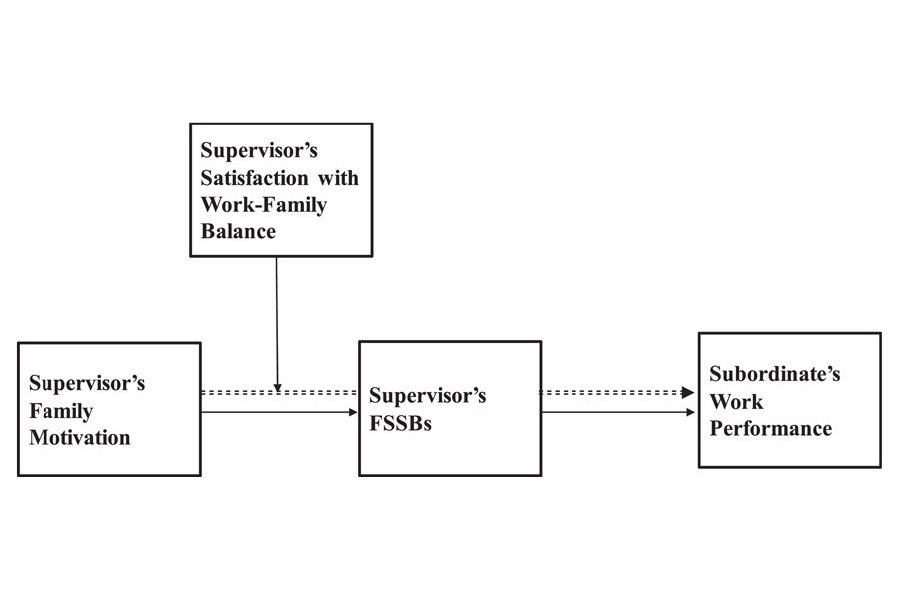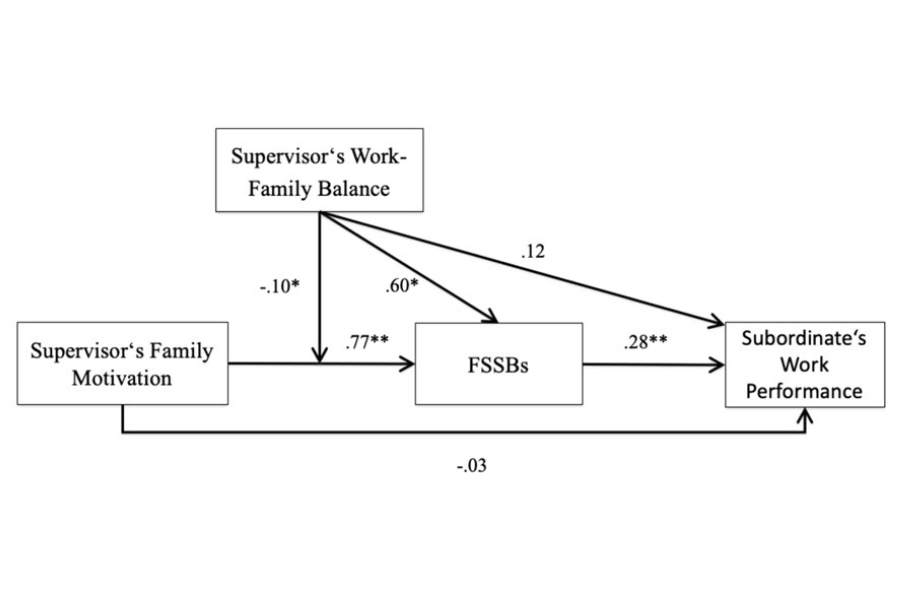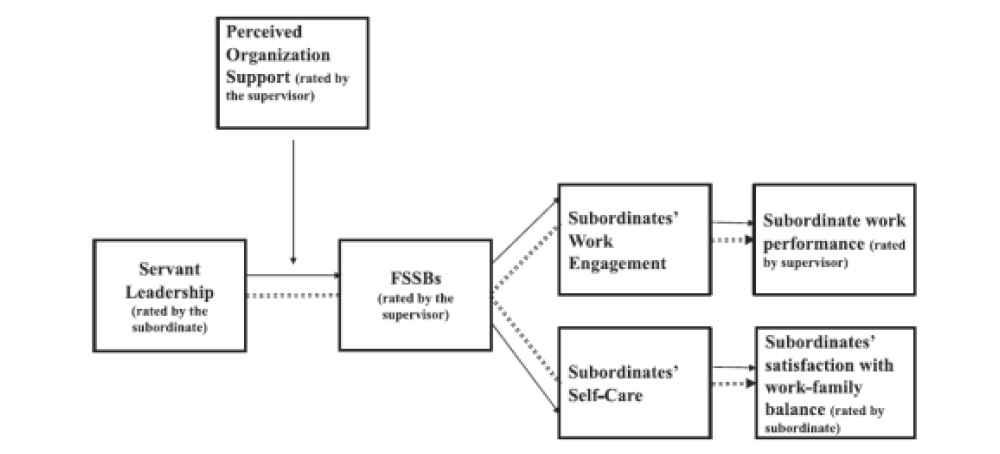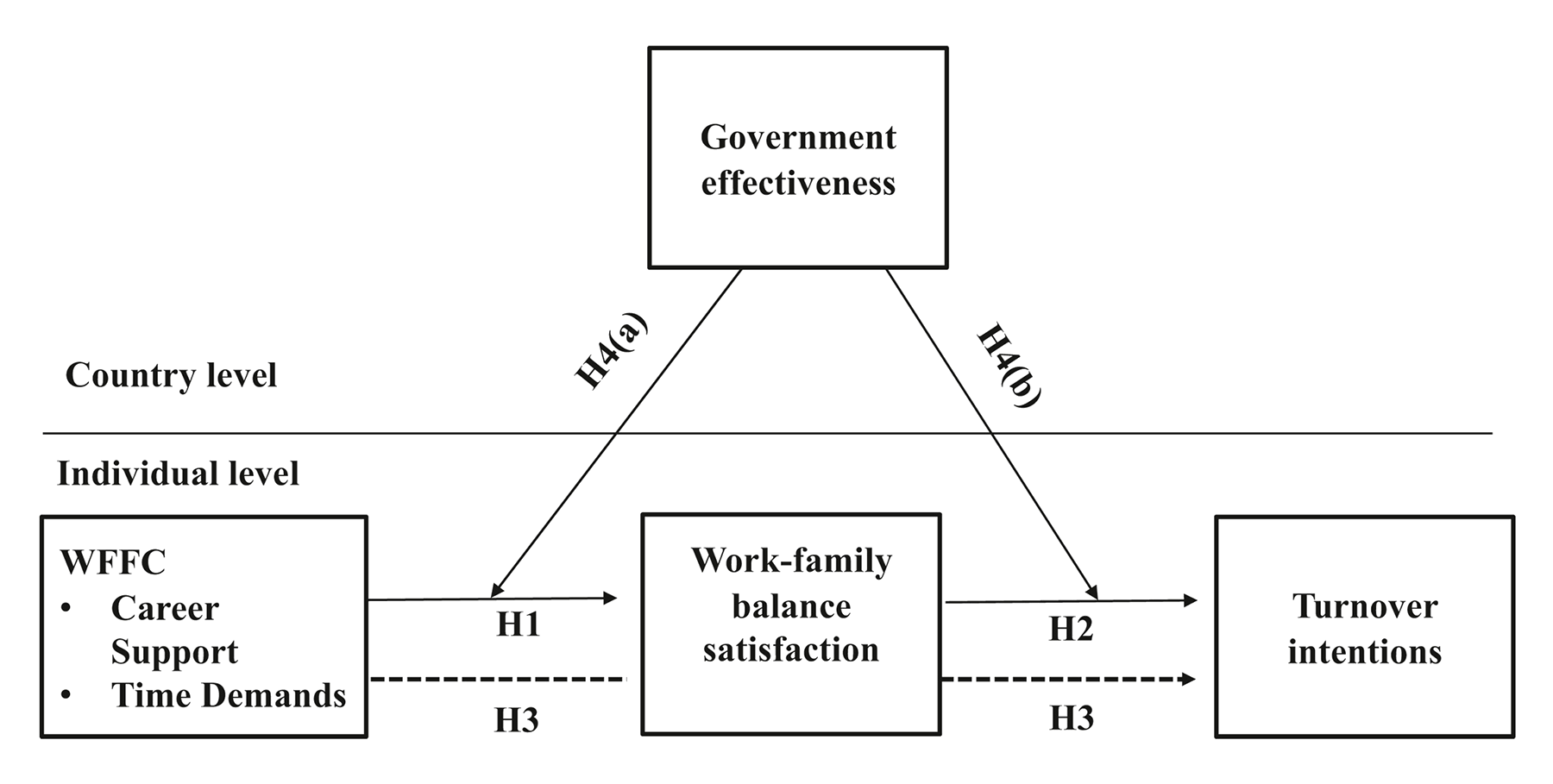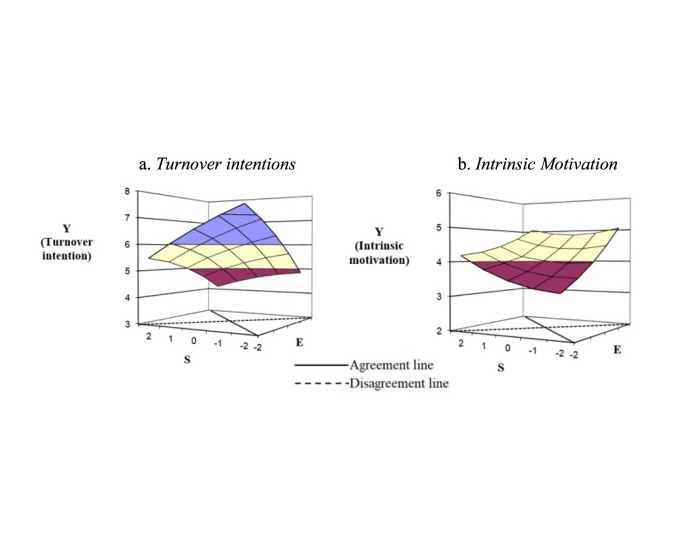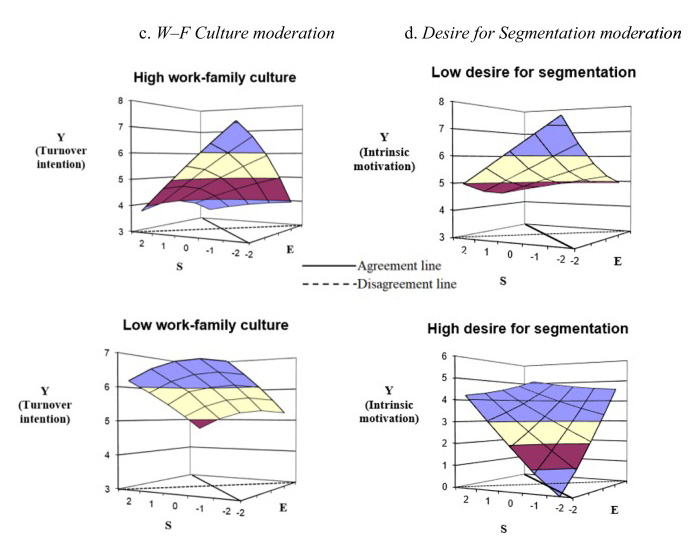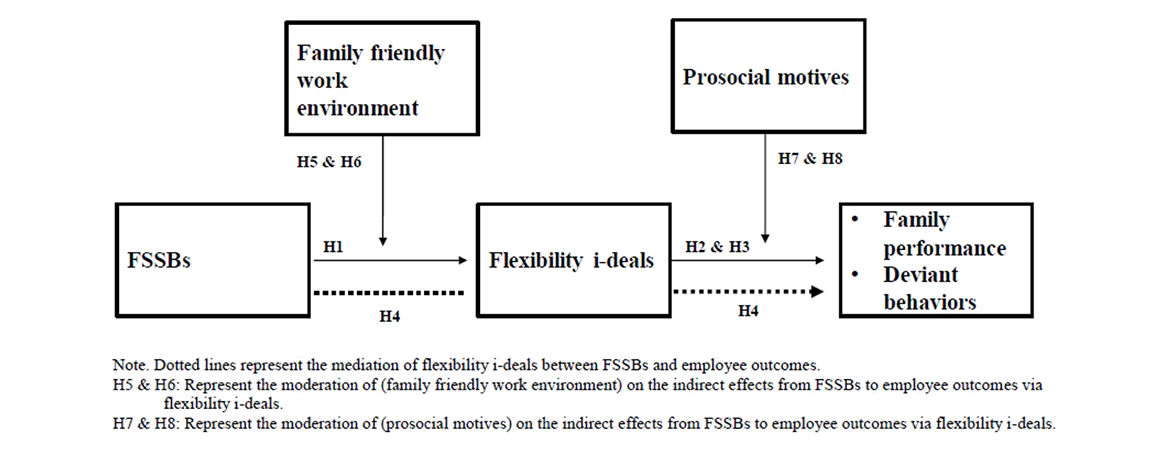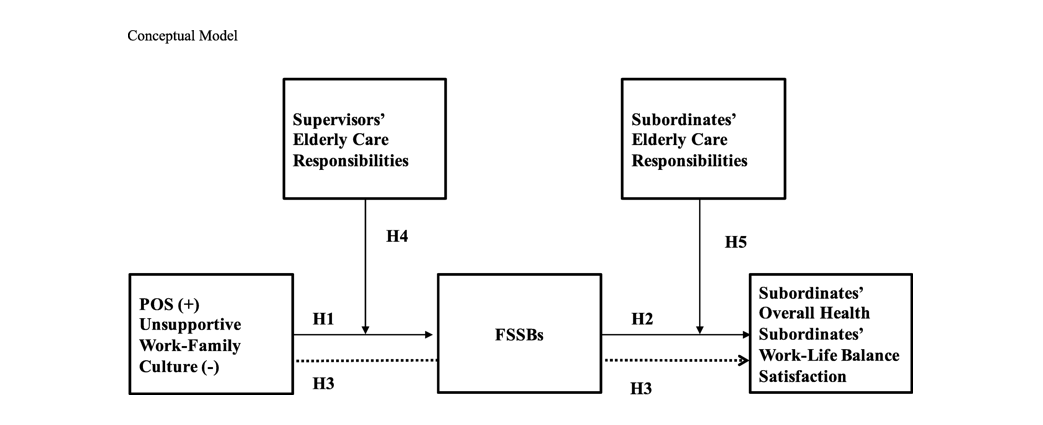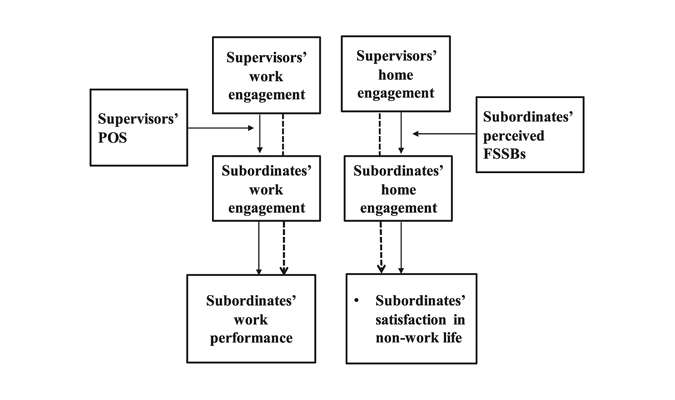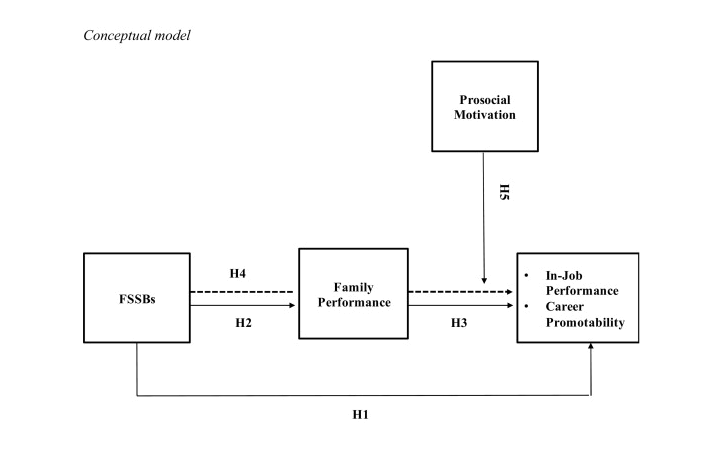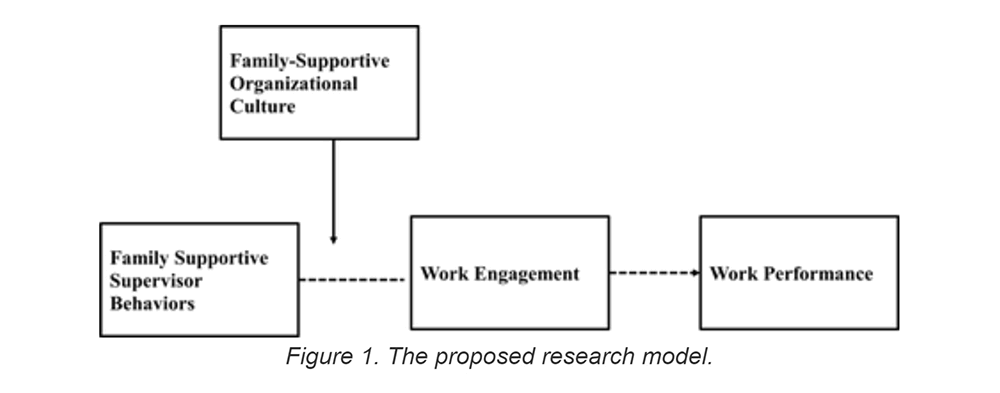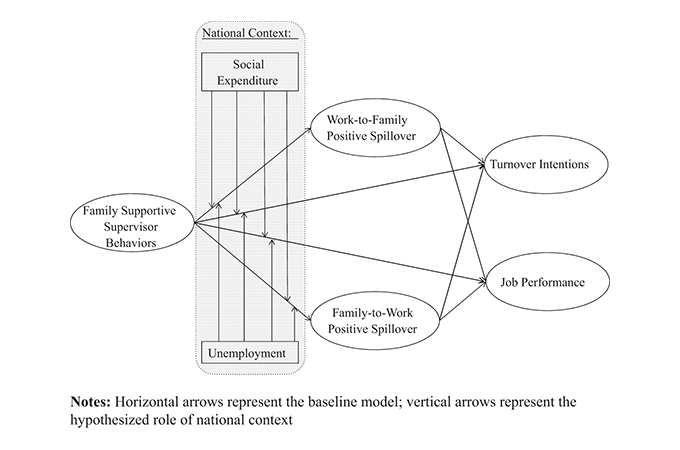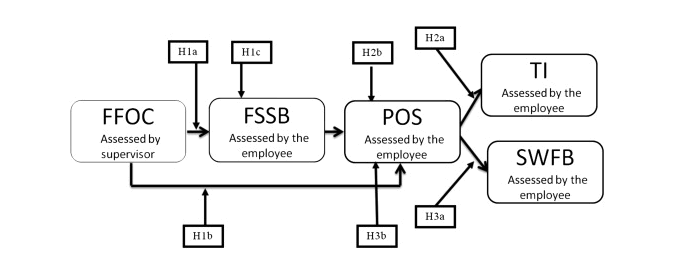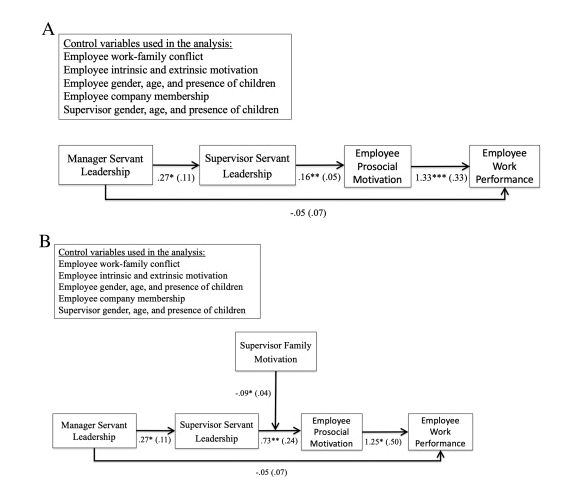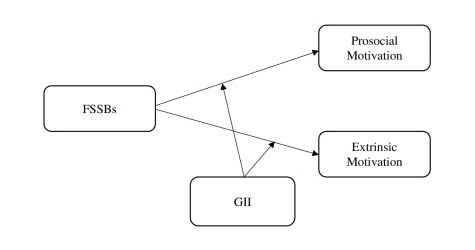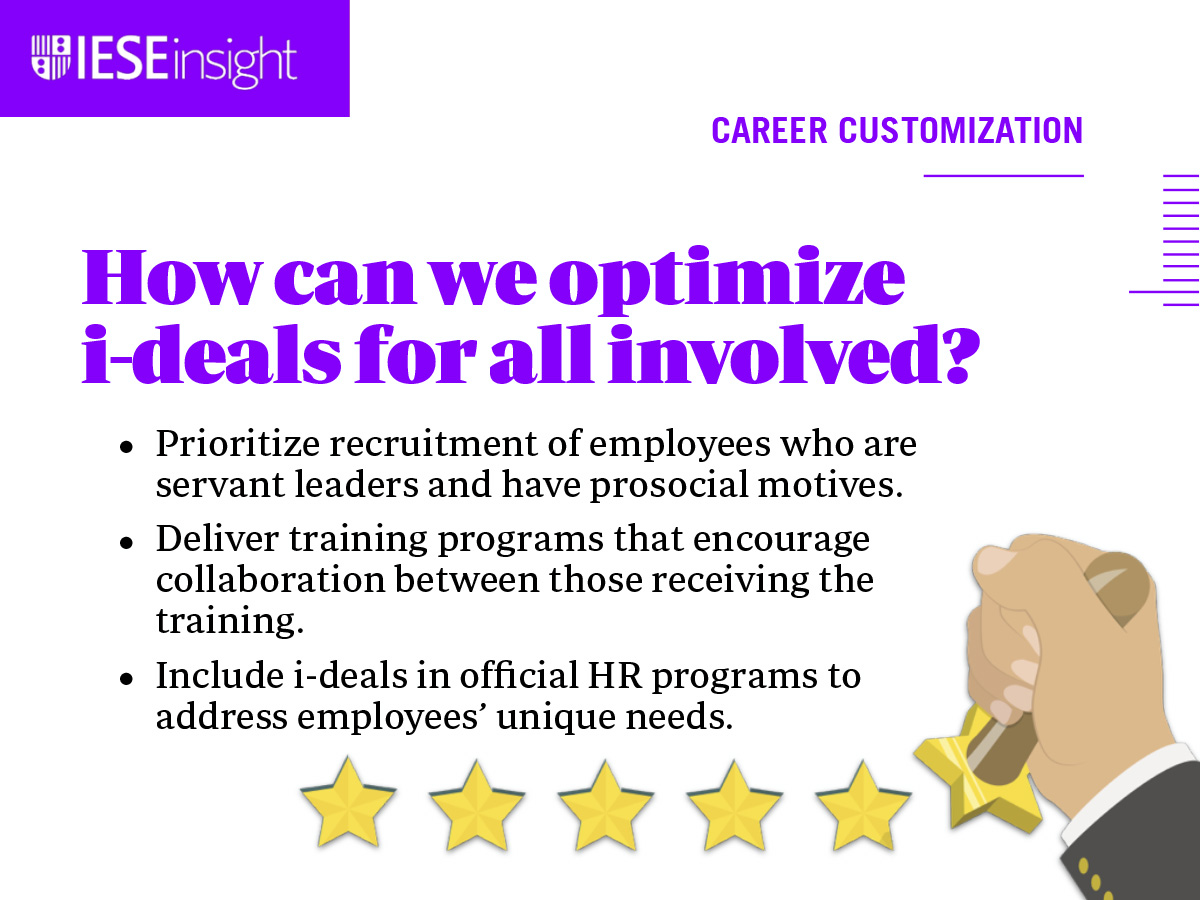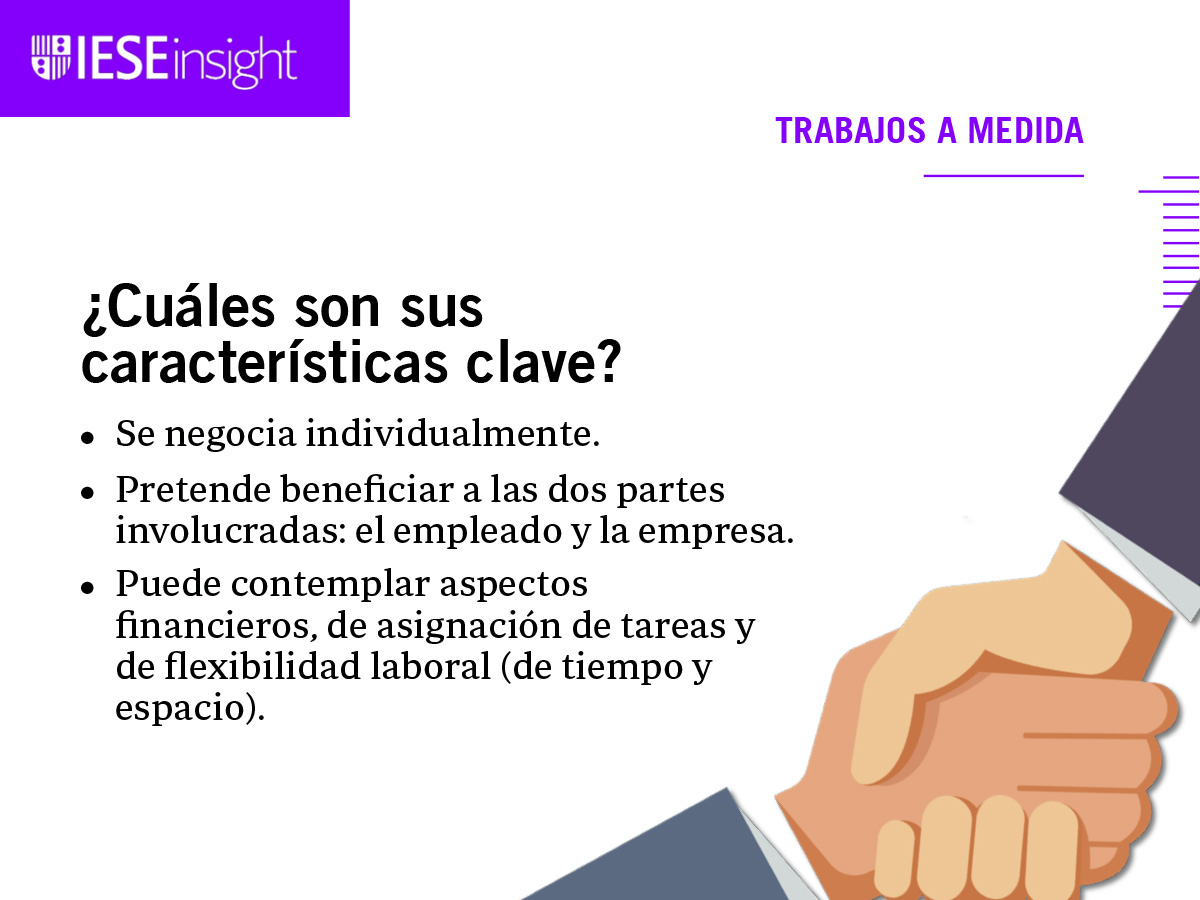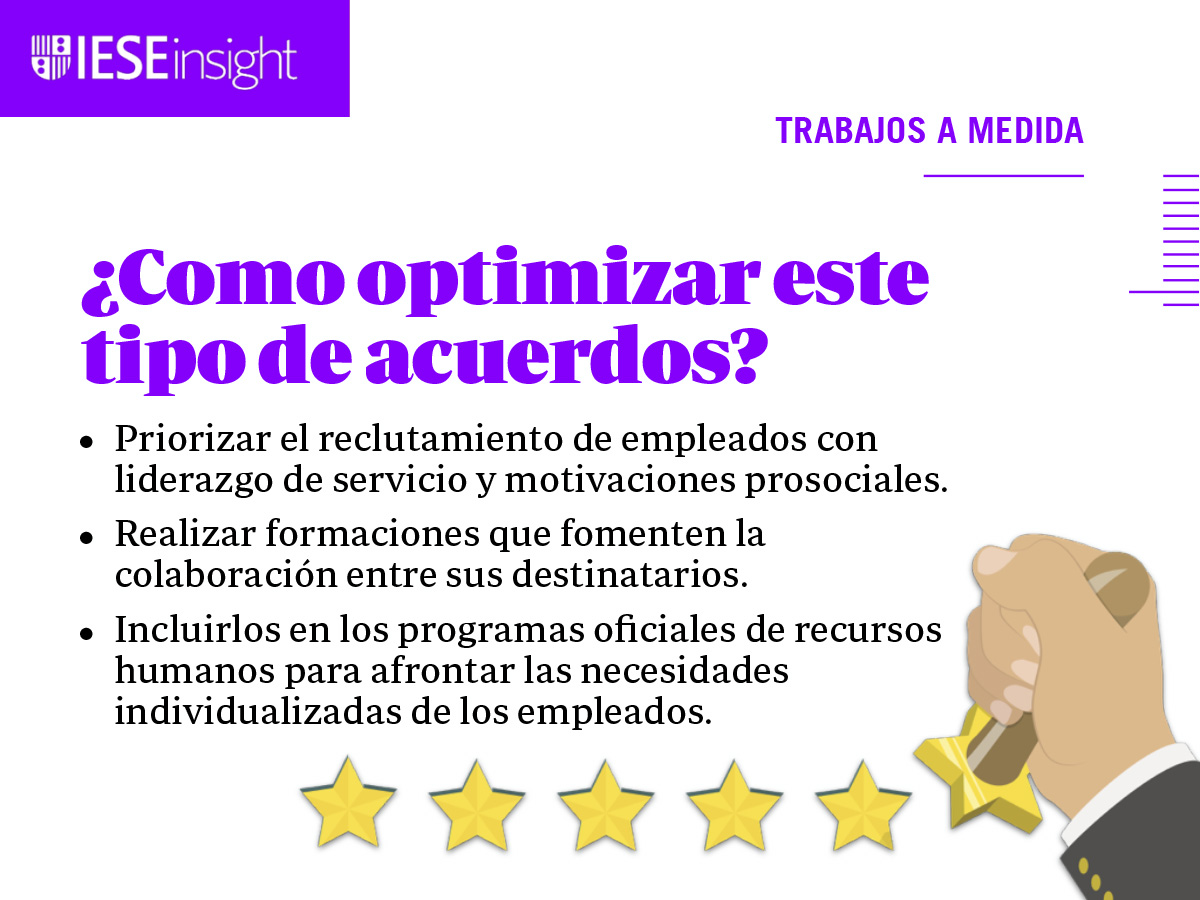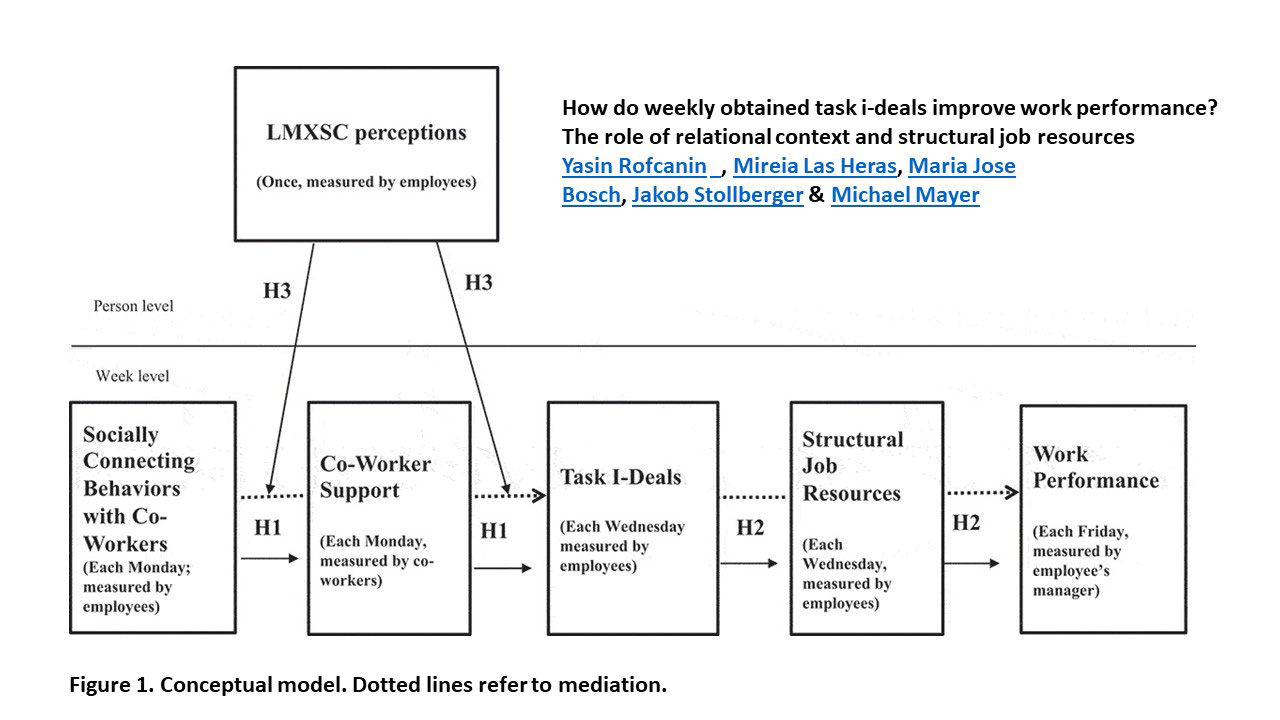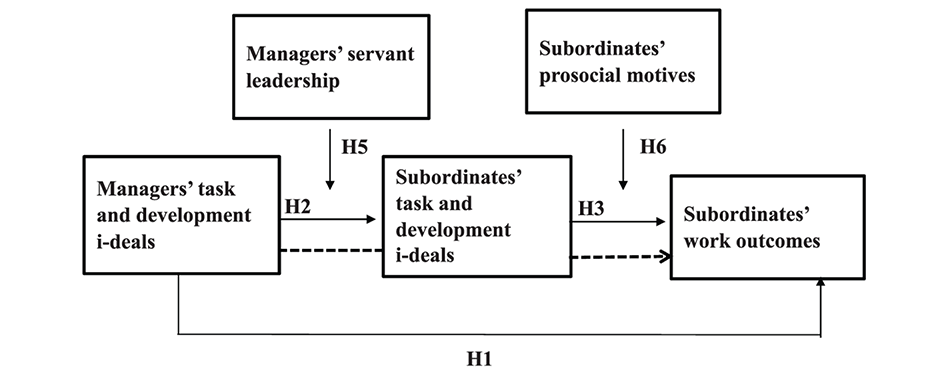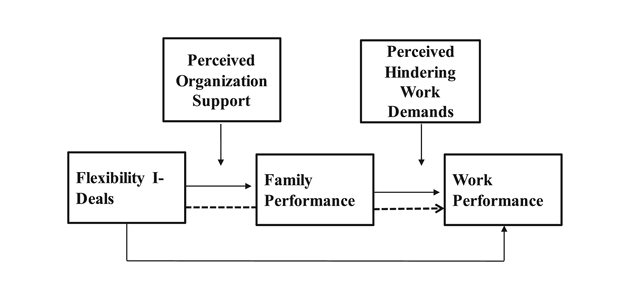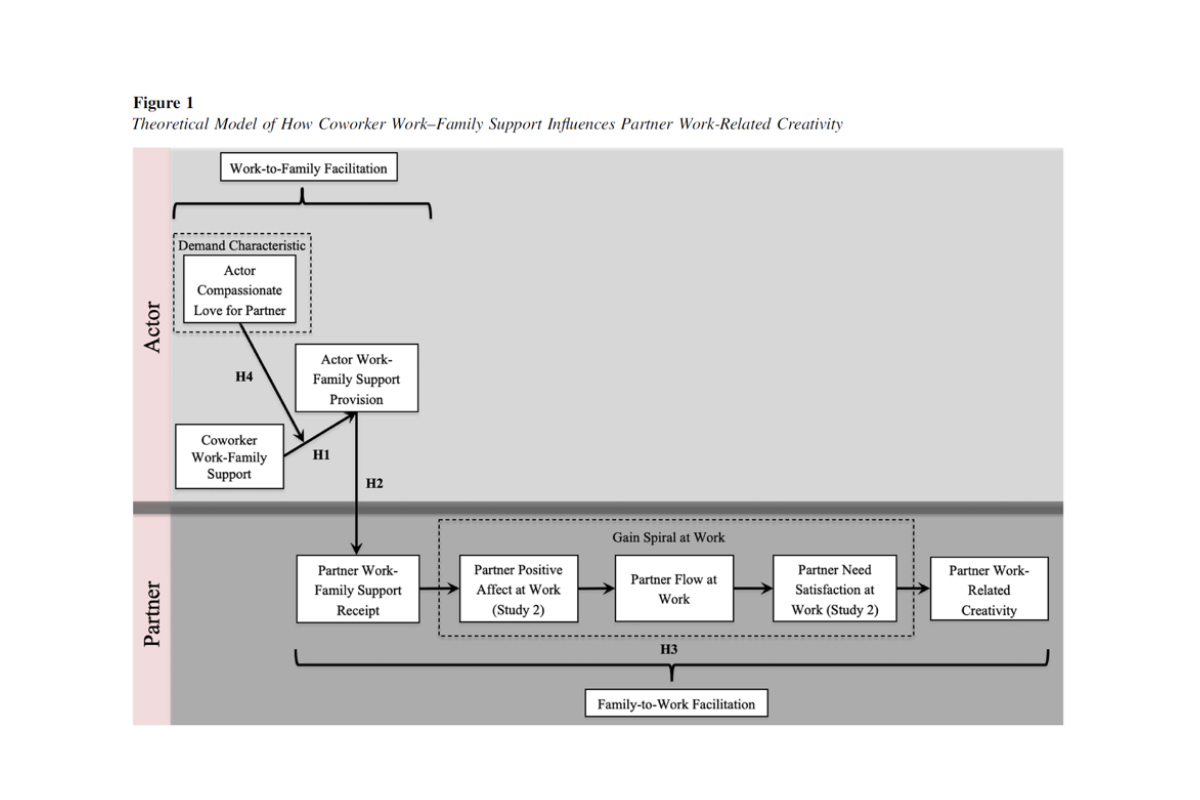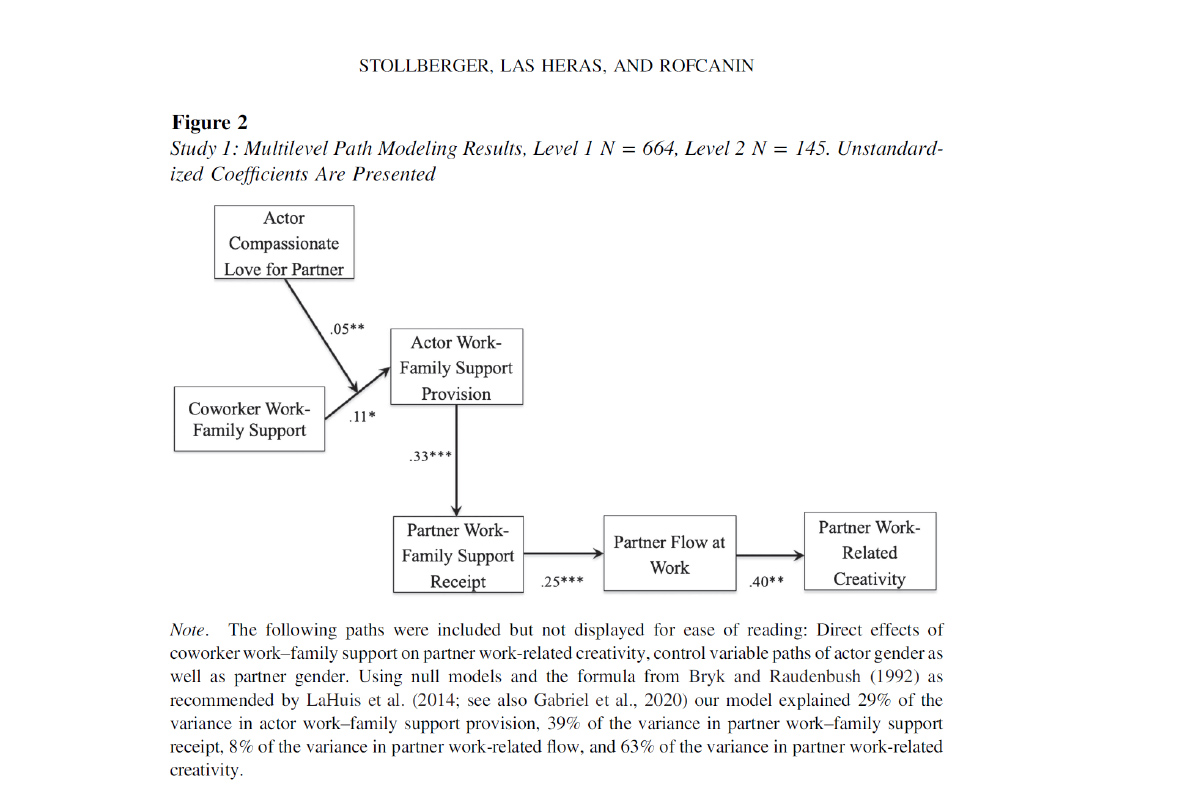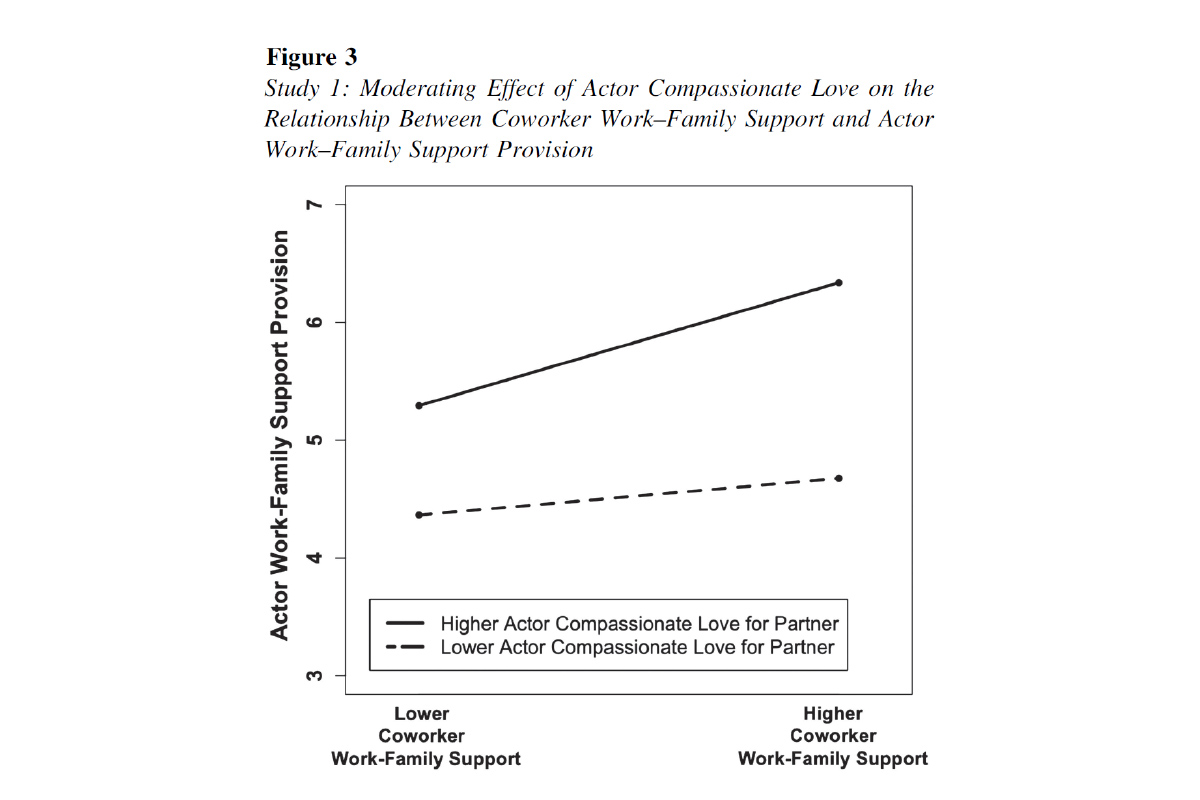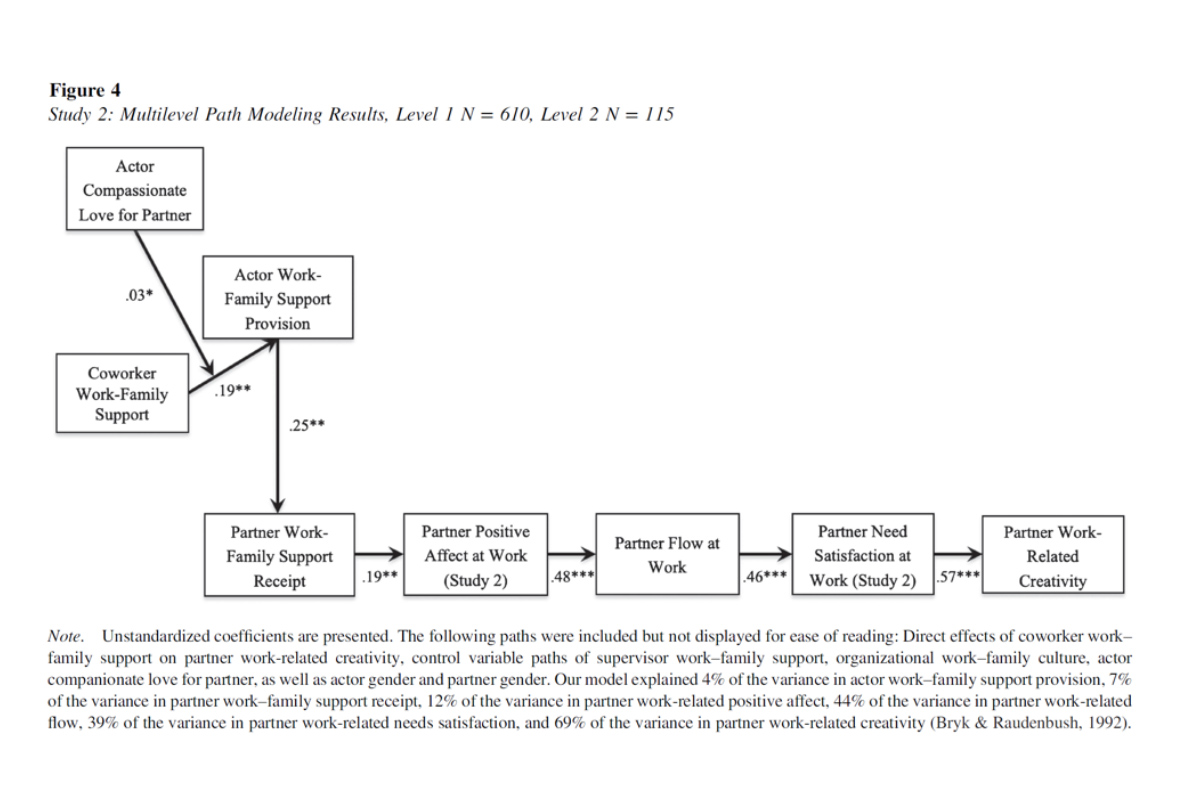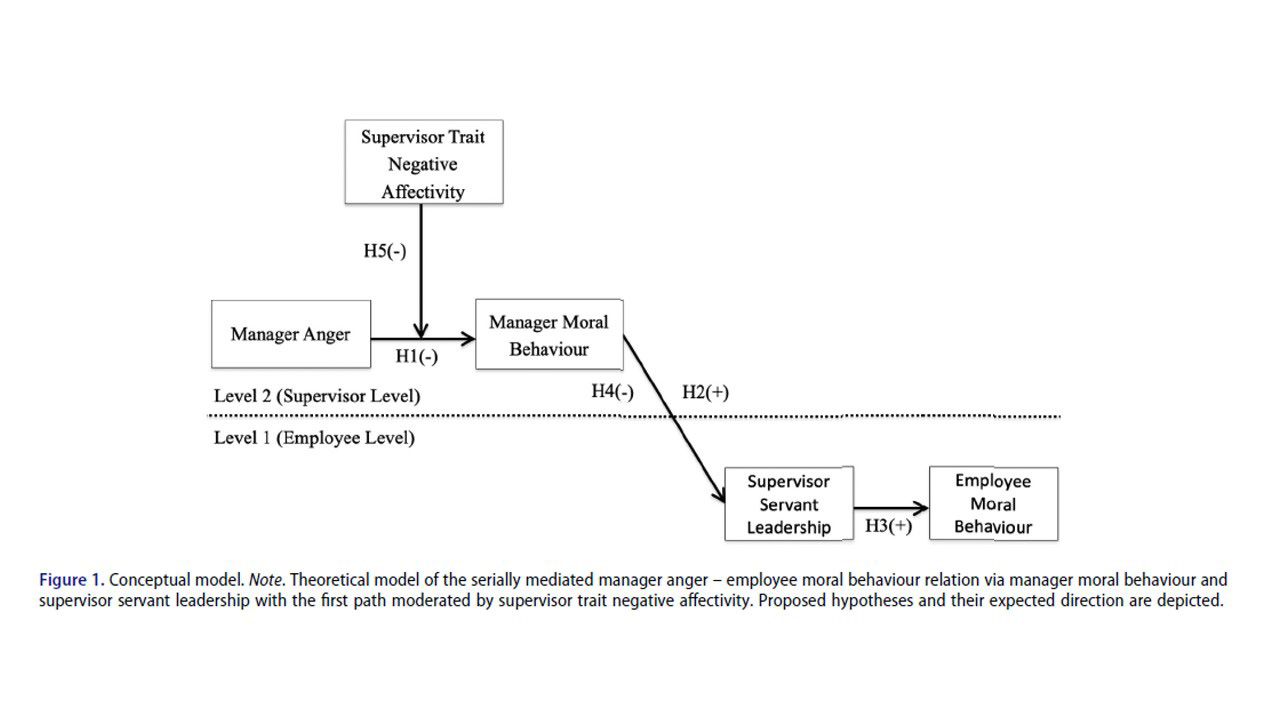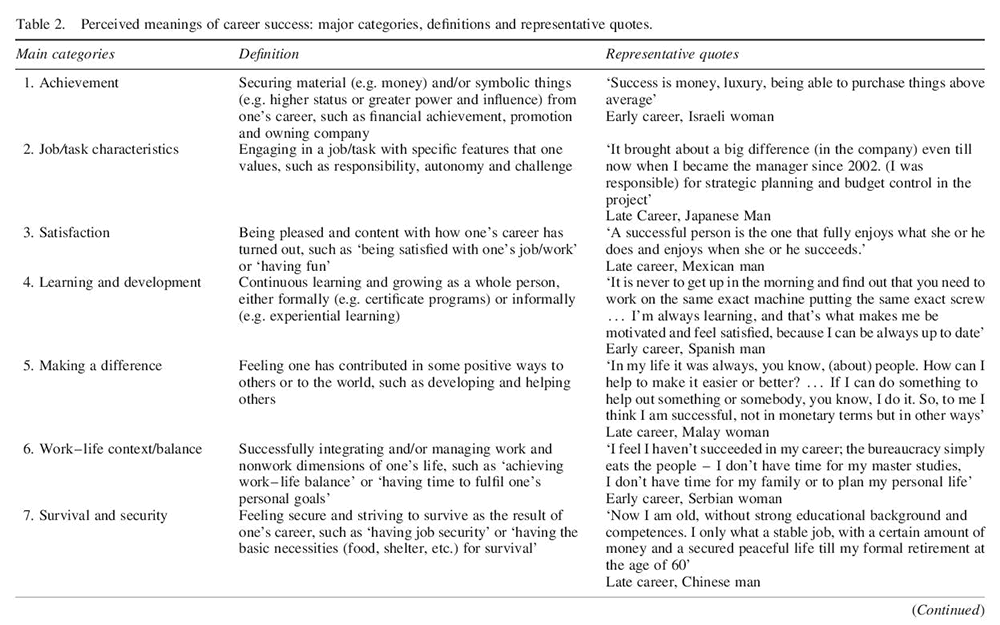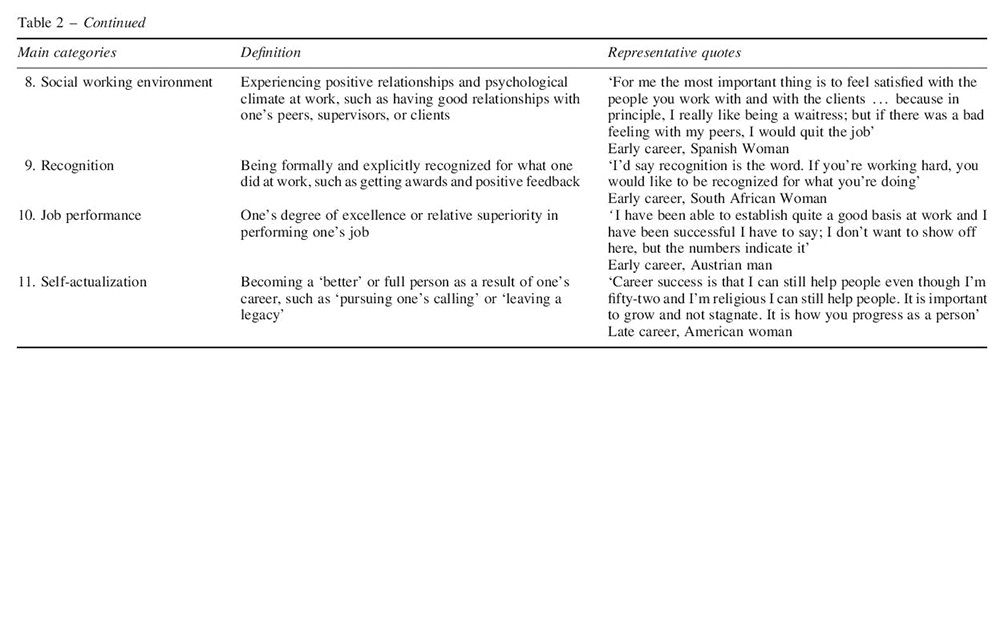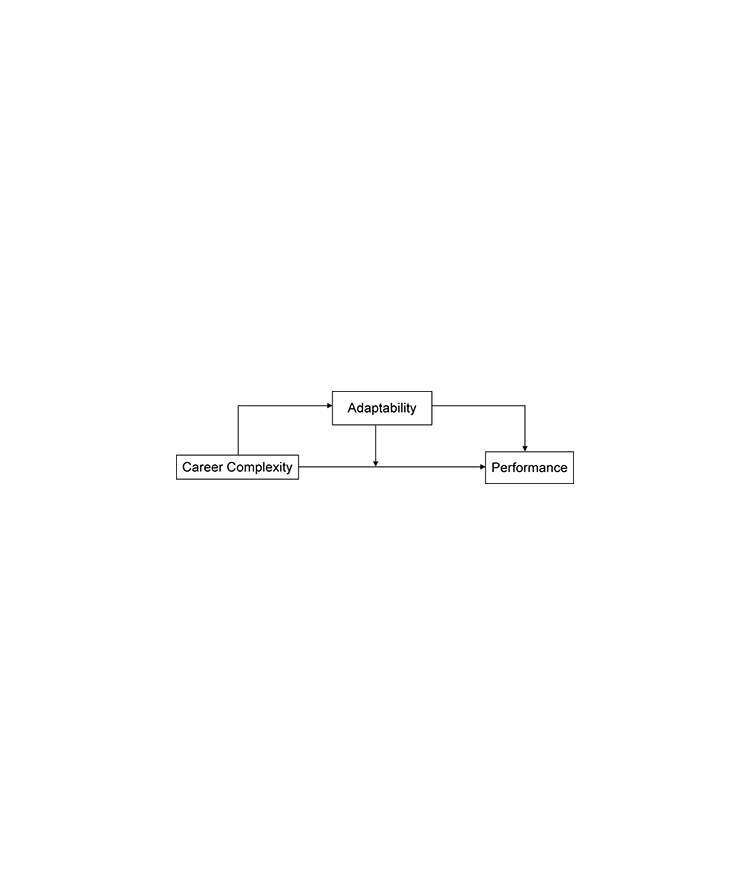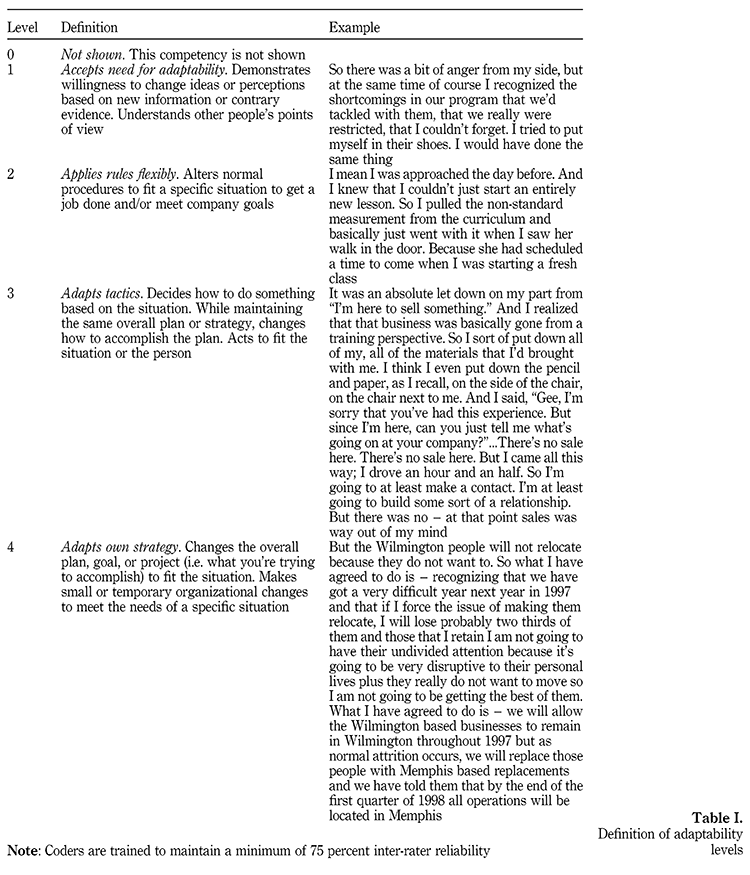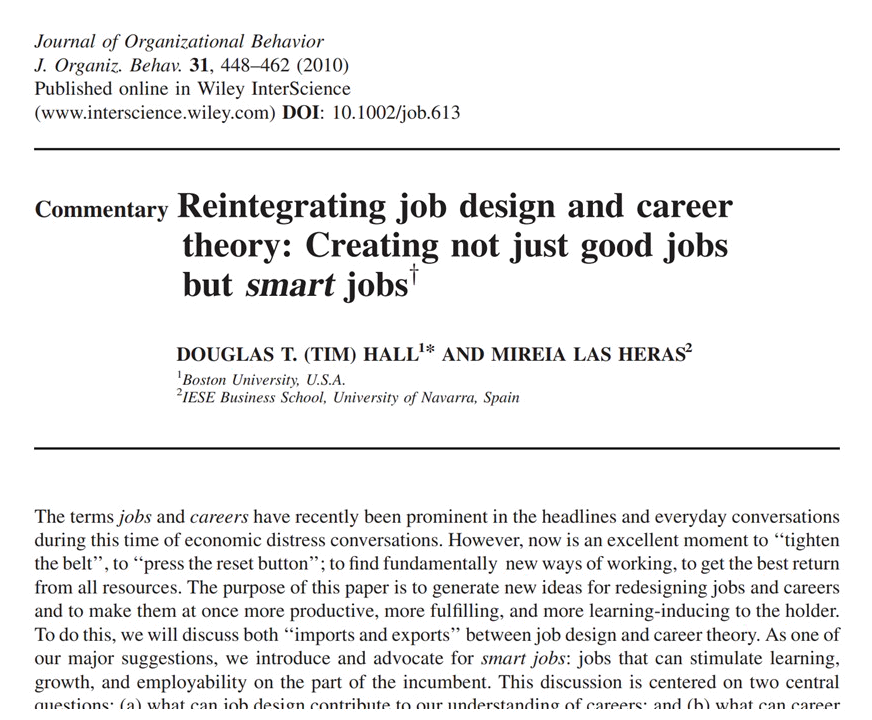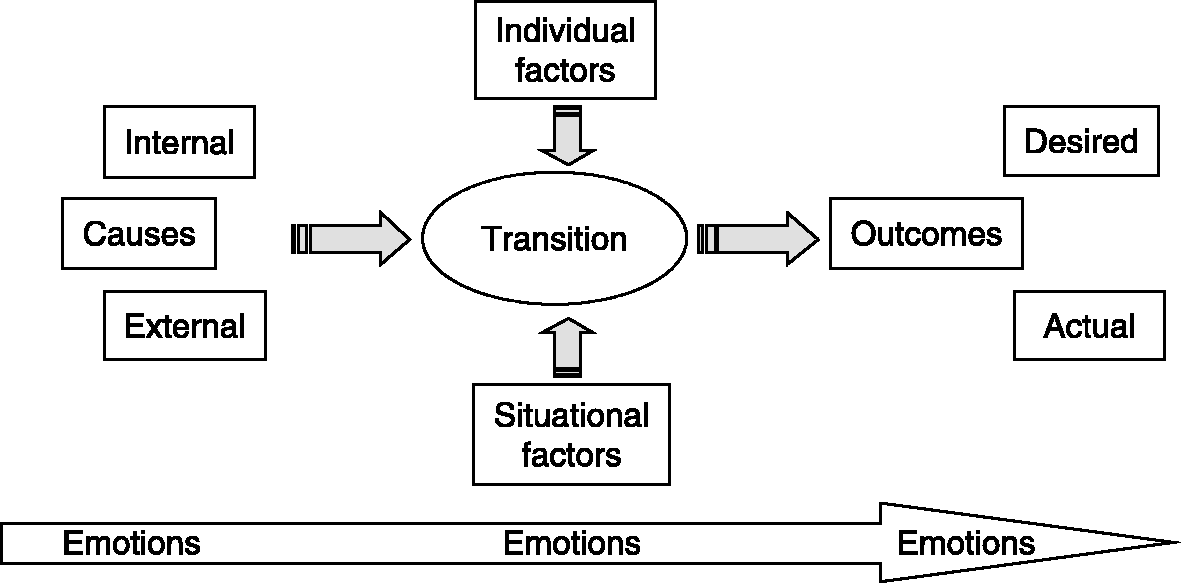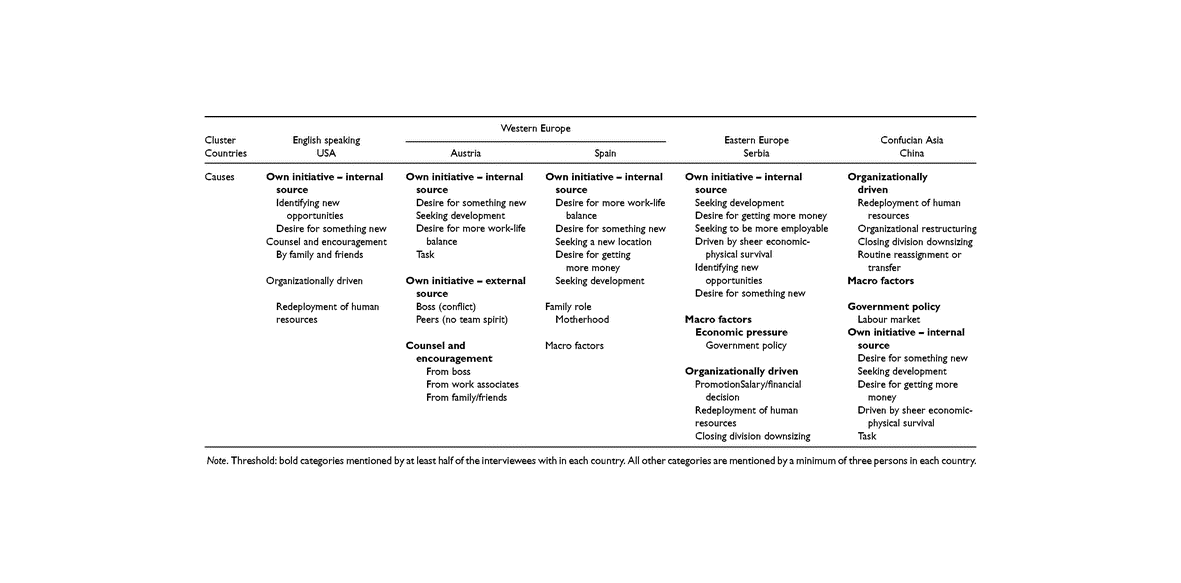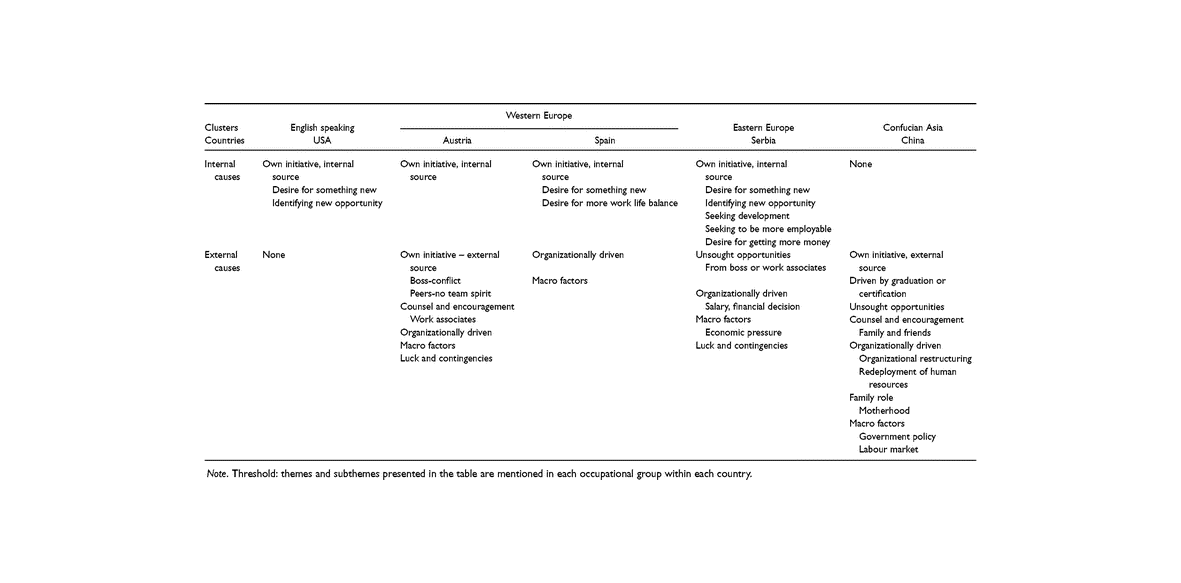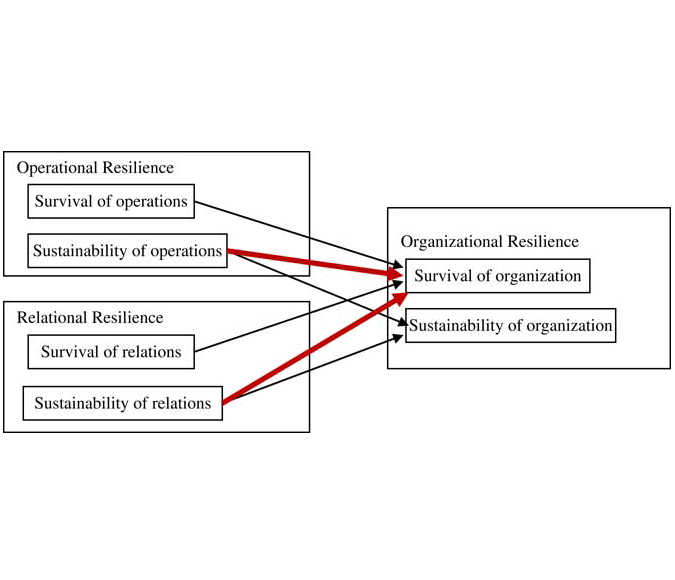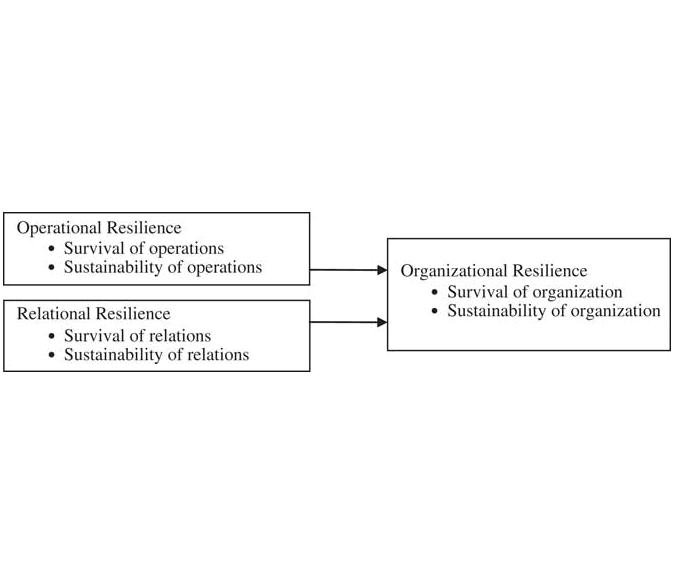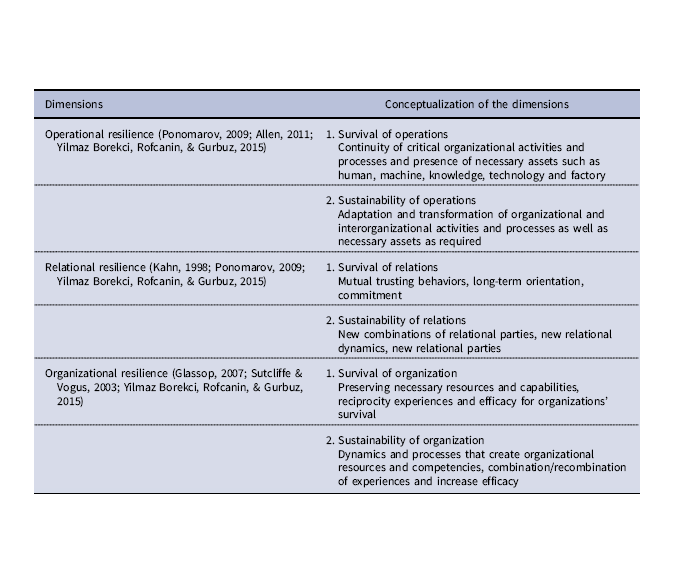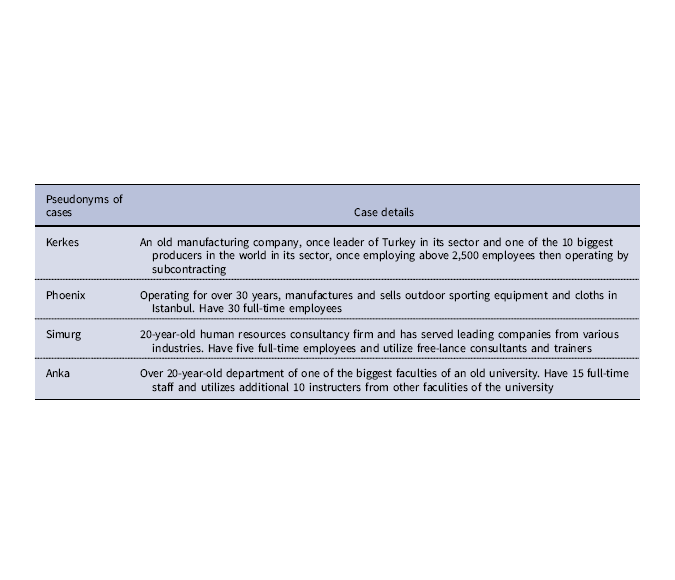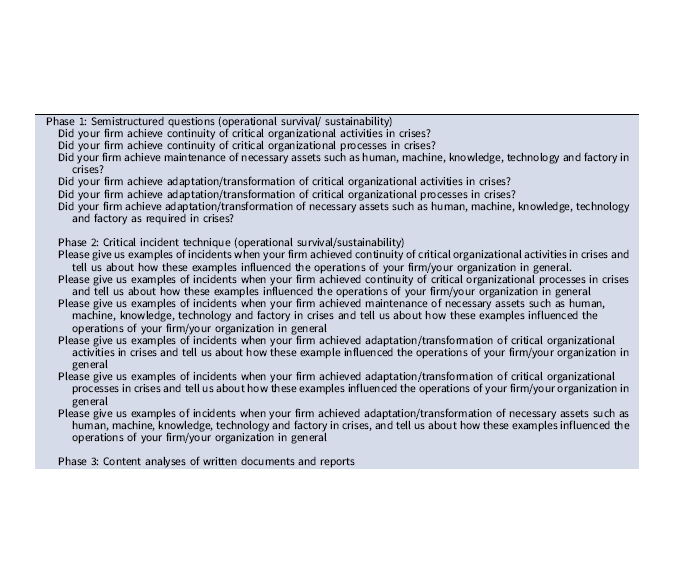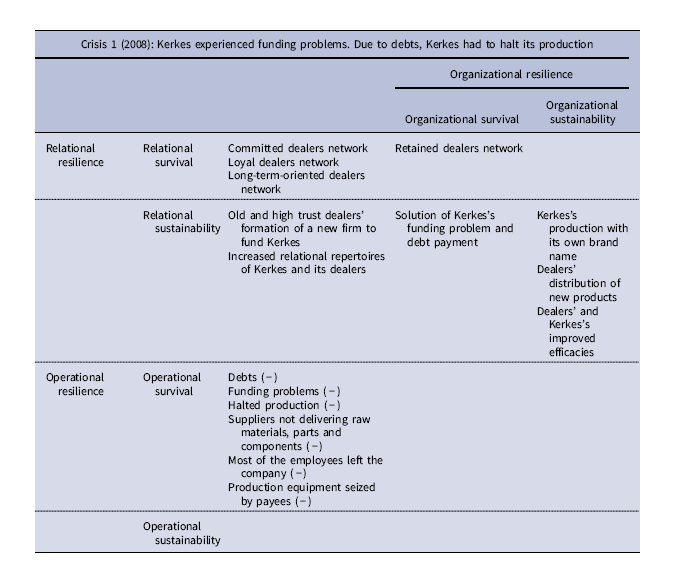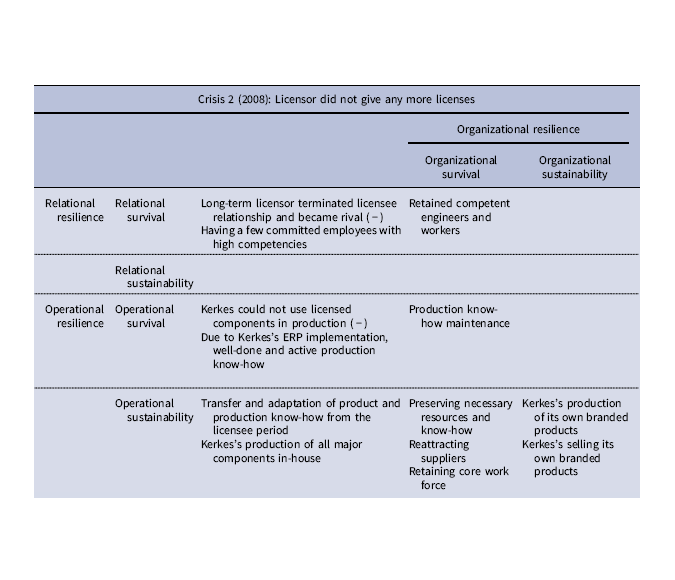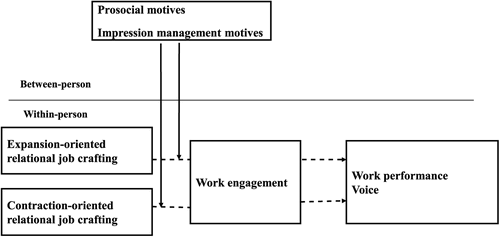Academic Research
Academic Papers
Leaders have a privilege. And a responsibility. Toward the organization. Towards employees.
The changing landscape of work and employment is shaping how organizations cope with the challenges of managing a diverse workforce entering the labor market. Employers have been trying to manage this demographic shift through supportive policies in the workplace, which is now seeing more of single parents, individuals with caring responsibilities and those in need of greater work flexibility. With the rapid popularity of gig economy, advances in technology and the free market system, traditional forms of employment featuring long-term and geographically bounded careers are becoming less relevant and meaningful. While this change is creating new work and career structures as well as opportunities for individuals, it is posing questions for organizations in maintaining their valuable human capital. Responding to these trends for nurturing talent and managing the changing nature of work and career structures, recent research has identified supervisor support as a lynchpin in mobilizing supportive resources to help employees manage demands arising from work and non-work (or personal) domains.
Amongst a range of resources available, the family supportive supervisor behaviors (i.e., FSSBs; Hammer et al., 2009), which are behaviors that supervisors display to help employees in juggling work and family demands, and consists of offering emotional support, being a role-model for effective balancing; and coming up with creative solutions to work-family challenges.
Papers in this section focus on studying the antecedents of FSSB at the supervisory and at the organizational level; the consequences of FSSB; the role of FSSB as mediating mechanism between organizational features (such as Family Friendly culture) and employees reactions (such as Turnover intentions, health and commitment).
Family supportive supervisor behaviors
Abstract
Family supportive supervisor behaviors (FSSB) have emerged as a powerful resource of informal support for the well-being and development of employees. However, research to date offers limited insight into the antecedents and underlying processes that may trigger FSSBs. We investigate the association between family motivation of supervisors and FSSBs, and how the latter mediates the association between supervisors’ family motivation and subordinates’ work performance. Furthermore, we examine the role of supervisors’ satisfaction with their work–family balance as a contextual variable influencing our proposed associations. We draw on FSSB and perspective taking theory as over-arching frameworks for our hypotheses. Using matched and multisource supervisor-subordinate data collected from an organization in Chile (196 subordinates and 75 supervisors), our findings revealed that FSSBs are mechanisms linking supervisors’ family motivation to subordinates’ work performance. Interestingly, this positive association is moderated by supervisors’ satisfaction with their work–family balance, such that the mediation of FSSBs is stronger for supervisors who are not satisfied with their work–family balance.
Citation
Erdogan, D. T., Heras, M. L., Rofcanin, Y., Bosch, M. J., & Stollberger, J. (2022). Family motivation of supervisors: Exploring the impact on subordinates’ work performance via family supportive supervisor behaviors and work–family balance satisfaction. Journal of Applied Social Psychology, 1– 17. https://doi.org/10.1111/jasp.12919
Servant leadership and family supportiveness: Looking into employees’ work and family outcomes.
Abstract
How does servant leadership trickle down to impact subordinates’ work and non-work outcomes? This study sets out to investigate the mechanisms and boundary conditions associated with this question. In so doing, we integrate two sequential mechanisms (family-supportive supervisor behaviours and work engagement/self-care) and a contextual condition (servant leader’s perceived organizational support) to address whether and how servant leaders shape subordinates’ work performance and their satisfaction with work–family balance. Using matched supervisor–subordinate data (770 supervisors and 819 subordinates) collected from a group of companies in Chile, our results from multilevel analyses largely support our hypotheses. We contribute to servant leadership and research on family supportiveness by: 1) introducing and discussing two separate and sequential mediating mechanisms to explain the trickle-down effect of servant leadership; 2) emphasizing the role of perceived organizational support in establishing when the trickle-down effect occurs; 3) highlighting the need to bridge two separate bodies of research (namely those of servant leadership and family supportive supervisor behaviours) in developing interventions in organizations to help employees manage work–family issues.
Keywords: #cross_national_comparison #family_supportive_work_environment #government_effectiveness #satisfaction_with_work_family_balance #turnover_intention
Citation
Yasin Rofcanin, Mireia Las Heras, Maria Jose Bosch, Aykut Berber, Farooq Mughal, Mustafa Ozturk, Servant leadership and family supportiveness: Looking into employees’ work and family outcomes, Journal of Business Research, Volume 128, 2021, Pages 70-82, ISSN 0148-2963, https://doi.org/10.1016/j.jbusres.2021.01.052
Family‐supportive organisational culture, work–family balance satisfaction and government effectiveness: Evidence from four countries.
Abstract
This study examines the extent to which perceptions of family‐friendly organisational culture relate to employees' satisfaction with work–family balance (SATWFB) and how this, in turn, associates with their turnover intentions (TIs). Furthermore, we explore the extent to which employee experiences of different levels of government effectiveness (GE; high, medium and low) moderate these associations. Drawing on the work–home resources (W‐HR) model, we test our hypotheses with a sample of 1185 employees drawn from countries with substantially different levels of GE—Nigeria, the Philippines, Guatemala and Spain. Our results show that employees' perceptions of SATWFB mediate the relationship between the two dimensions of family‐friendly organisational culture and TIs of employees. This mediation is weaker for countries where employees experience high GE. Our findings contribute to research on the drivers of work–family balance satisfaction from a cultural and organisational perspective. We expand this line of research by introducing a new resource: GE. Our focus on four different national contexts also strengthens the comparative work–family balance literature.
Keywords: #cross_national_comparison #family_supportive_work_environment #government_effectiveness #satisfaction_with_work_family_balance #turnover_intention
Citation
2020 Heras, M.L., Rofcanin, Y., Escribano, P.I., Kim, S. and Mayer, M.C.J. (2020), Family‐supportive organisational culture, work–family balance satisfaction and government effectiveness: Evidence from four countries. Hum Resour Manag J.
When employees and supervisors (do not) see eye to eye on family supportive supervisor behaviours: The role of segmentation desire and work-family culture
Abstract
Helping employees juggle work and family responsibilities is critical in a time of harsh competition, time pressure and increasing employee turnover. Family supportive supervisor behaviors (FSSBs) contribute to this, yet, employees and supervisors do not necessarily agree on the FSSBs exhibited by the supervisor. Building on the selfother agreement framework, we explore how (dis)agreement in employe-esupervisor FSSBs perceptions relate to employees' intrinsic motivation and turnover intentions. Moreover, we integrate work-family culture and employees' desire for segmentation as boundary conditions. Using 569 employee-supervisor dyads from El Salvador, we found partial support for our hypotheses. Intrinsic motivation is highest when employees and supervisors agree on high FSSBs, yet only when employees desire segmentation. In contrast, when employees desire integration, such FSSB agreement harms intrinsic motivation. Moreover, turnover intention is lowest when employees and supervisors agree on high FSSBS, yet only when supported by a strong work-family culture. We contribute to FSSB research by demonstrating the importance of employees and supervisors seeing eye to eye as well as the need for a fit with the work-family culture and employees' desire for segmentation.
Keywords: #Family_supportive_supervisor_behaviours #Work_family_culture #Intrinsic_motivation #Turnover_intentions #Segmentation_desire
Citation
Elise Marescaux, Yasin Rofcanin, Mireia Las Heras, Remus Ilies, María José Bosch, When employees and supervisors (do not) see eye to eye on family supportive supervisor behaviours: The role of segmentation desire and work-family culture, Journal of Vocational Behavior, Volume 121, 2020, 103471, ISSN 0001-8791
Family‐supportive organisational culture, work–family balance satisfaction and government effectiveness: Evidence from four countries.
Abstract
Requests for flexible work practices have become commonplace, with the aim of helping employees perform more effectively in both their private and work lives. One path for employees to secure flexible work is through the negotiation of individualized work arrangements, also known as "i-deals". This study provides valuable insights into the nomological network of schedule-flexibility i-deals by drawing on the Conservation of Resources (COR) theory. We propose that, via resource accumulation, schedule-flexibility i-deals are a mechanism through which the emotional support of supervisors promotes employees' family performance and reduces deviant work behaviors. Drawing further on the COR framework, we examine two boundary conditions that guide employees' resource investment: perception of family-friendly environment and prosocial motivation. We collected multi-source data from employees working in South America and tested our hypotheses using structural equation modeling. Our results provide support for the key mediating role of schedule-flexibility ideals. Moreover, the indirect relationship between supervisors' emotional support and family performance through schedule-flexibility i-deals is stronger in family-friendly organizational contexts, as well as when employees are prosocially motivated.
Our results also show that, contrary to the expected effect, when prosocial motivation is high, employee supervisors' emotional support is positively linked to deviant behaviors. We contribute to the literature by emphasizing the roles of perceived resources at the levels of leaders (i.e., supervisors' emotional support), context (supervisors' perceptions of a family-friendly environment), and individuals (employees' prosocial motivation). We demonstrate the importance of these resources in establishing and sustaining schedule-flexibility i-deals.
Keywords: #SupervisorEmotionalSupport #Schedule-flexibility #i-deals #FamilyPperformance #DeviantBehavior #ProsocialMotivation
Citation
Ciara Marian Kelly; Yasin Rofcanin; Mireia Las Heras; Chidiebere Ogbonnaya; Elise Marescaux; María José Bosch Kreis “Seeking an “ideal” balance: Schedule-flexibility i-deals as mediating mechanisms between supervisor emotional support and employee work and home performance” Journal of Vocational Behavior (2019)
FSSBs and Elderly Care: Exploring the Role of Organizational Context on Employees’ Overall Health and Work-Family Balance Satisfaction
Abstract
Fierce competition coupled with increasing presence of dual-earning couples and blurred boundaries between work and family increasingly render work-family lives of employees important. In this context, one strategy to enable employees achieve greater work-family interface is via Family Supportive Supervisor behaviours (FSSBs), defined as supervisors’ informal discretion to implement family friendly policies at work. Inspired by the growth in research on FSSBs, the over-arching goal of this study is to explore a) the triggers of FSSBs from an organizational context perspective, b) the role of FSSBs as a mechanism to translate the impact of organizational context on subordinates’ overall health and work-family balance satisfaction. Furthermore, we expand our model by integrating the c) role of supervisors’ and subordinates’ elderly care responsibilities as an individual boundary condition to explain how FSSBs unfold and for whom they are most effective. Using the Work-Home Resources model (i.e., W-HR model; Ten Brummelhuis & Bakker, 2012), we test our hypotheses with matched data of subordinates and their supervisors collected in El Salvador and Peru.
Keywords: #FamilySupportiveSupervisorBehaviors #ElderCare #POS #Health #Work–familySatisfaction
Citation
Rofcanin, Y., Las Heras, M.*, Escribano , P., & Stanko, T. “FSSBs and Elderly Care: Exploring the Role of Organizational Context on Employees’ Overall Health and Work-Family Balance Satisfaction.” Journal of Business and Psychology
*Yasin Rofcanin and Mireia Las Heras contributed equally to this work.
Having a Closer Look at the Positive Crossover between Supervisors and Subordinates: The Role of Organizational Culture and FSSB
Abstract
Drawing on crossover and social cognitive theories, our main goal in this study is to explore mechanism and boundary conditions to understand how positive crossover occurs between supervisors and their subordinates. We focus on the nature and foundations of positive crossover in the domains of work and home, and explore the downstream consequences for subordinates’ domain-specific outcomes.
Using matched supervisor-subordinate data (N = 289 subordinates; 102 supervisors), the results of multi-level analyses demonstrated that
- perceived organization support of supervisors moderates the positive association between supervisors’ and subordinates’ work engagement while
- supervisors’ family supportive supervisor behaviours moderates the positive association between supervisors’ and subordinates’ home engagement. Importantly, subordinates’ work and home engagement explains why supervisors’ state of engagement in work and home domains, respectively, explain subordinates’ functioning in work and home domains.
- highlighting the role of relational mechanisms as boundary conditions of crossover process,
- helping understand how crossover impacts on subordinates’ key outcomes at work and home and
- expanding crossover research into supervisor-subordinate dyads with data collected in an understudied context, Chile.
Keywords: #Crossover #FSSB #FamilySupportiveSupervisorBehaviors #HomeEngagement #POS #WorkEngagement
Citation
Yasin Rofcanin, Mireia Las Heras, Maria Jose Bosch, Geoffrey Wood. “Having a Closer Look at the Positive Crossover between Supervisors and Subordinates: The Role of Organizational Culture and FSSB” Human Relations
The moderating role of prosocial motivation on the association between family-supportive supervisor behaviours and employee outcomes
Abstract
The purpose of our study is to understand how family supportive supervisor behaviors (FSSB) relate to employee work performance and perceived promotability, and to understand the moderation of prosocial motivation on this association. We use work-family enrichment theory to explain the role of family performance as a mediator between FSSBs and employee outcomes. On the other hand, we propose that prosocial motivation can influence the effect of FSSB in such a way that it becomes negative when the subordinate has high levels of prosocial motivation. Using a dataset of 187 supervisor-subordinate dyads across four organizations located in Chile, Argentina and the Philippines, our findings from multi-level analyses revealed a direct positive association between FSSB and work performance and perceived promotability. However, our findings do not support an indirect association between FSSB and job performance and promotability through family performance.
Keywords: #Crossover #FSSB #FamilySupportiveSupervisorBehaviors #ProsocialMotivation
Citation
Yasin Rofcanin1, Jeroen P. de Jong2, Mireia Las Heras3, Sowon Kim, “The moderating role of prosocial motivation on the association between family-supportive supervisor behaviours and employee outcomes”, Journal of Vocational Behavior, Volume 107, 2018, Pages 153-167, ISSN 0001-8791
1, 2 and 3 contributed equally to the paper
Seeing eye to eye on family supportive supervisor behaviors: the impact on employee outcomes.
Abstract
Helping employees juggle work and family responsibilities is key for managers and organizations in a time of harsh competition, time pressure and increasing turnover of employees. In that regard, “family supportive supervisor behaviors” (FSSBs) have been shown to contribute to this need. Yet, employees and supervisors do not necessarily see eye to eye when it comes to the FSSB exhibited by the supervisor, which can influence the effectiveness of such behaviors. Hence, the main aim of this research is to explore the mechanisms and boundary conditions of how an employee-supervisor (mis)fit in perceptions of FSSBs relate to intrinsic motivation and turnover intentions of employees.
Furthermore, we integrate the role of work-family culture (as an organizational characteristic) and segmentation preference (as an individual characteristic), as boundary conditions to delineate these associations. Using polynomial regression analyses, results of a matched data set including supervisors and their subordinates, collected in El Salvador, partially supported our hypotheses and revealed unique patterns. This study contributes to research on FSSBs, by a) demonstrating the importance of employees and supervisors seeing eye to eye in relation to FSSBs as a driver of intrinsic motivation and turnover intention and b) exploring two boundary conditions that amplify the effectiveness of FSSBs for managers and organizations. The paper ends by offering some practical implications both for mangers and organizations.
Keywords: #FamilySupportiveSupervisorBehaviors #Work-familyCulture #IntrinsicMotivation #TurnoverIntention #SegmentationPreference
Citation
Marescaux. E., Rofcanin, Y. and Las Heras, M. (2018). Seeing eye to eye on family supportive supervisor behaviors: the impact on employee outcomes. Best Paper Proceedings at Academy of Management Conference, 2018, Chicago, the USA.
Family supportive supervisor behaviors and organizational culture: Effects on work engagement and performance
Abstract
Informed by social information processing (SIP) theory, in this study, we assessed the associations among family supportive supervisor behaviors (FSSBs) as perceived by subordinates, subordinate work engagement, and supervisor-rated work performance. Moreover, we explored the role of family supportive organizational culture as a contextual variable influencing our proposed associations. Our findings using matched supervisor–subordinate data collected from a financial credit company in Mexico (654 subordinates; 134 supervisors) showed that FSSBs influenced work performance through subordinate work engagement. Moreover, the positive association between subordinates’ perceptions of FSSBs and work engagement was moderated by family supportive organizational culture.
Keywords: #FamilySupportiveSupervisorBehaviors #Work-familyCulture #Engagement #Performance
Citation
Rofcanin, Y., Las Heras, M., & Bakker, A. B. (2017). Family supportive supervisor behaviors and organizational culture: Effects on work engagement and performance. Journal of Occupational Health Psychology. Vol 22(2), Apr 2017, 207-217
How national context moderates the impact of family-supportive supervisory behavior on job performance and turnover intentions
Selected by the journal’s editorial team as the Outstanding Paper in the 2016 Emerald Literati Network Awards for Excellence.
Abstract
In this study, we focus on how national context moderates the impact of family-supportive supervisory behavior (FSSB) on employee’s job performance and turnover intentions. We consider direct and indirect (through work-family positive spillover) effects of FSSB. We use conservation of resources (COR) theory and boundary theory to develop our model and we theorize national context as contributing resources to or threatening with loss of resources for individuals. To test the model, we use data from three Latin-American countries—Brazil, Chile, and Ecuador. Our results show that national context moderates the direct and indirect effects of FSSB on outcomes. We discuss these findings and their theoretical and practical implications.
Keywords: #FamilyFriendly #FSSB #Cross-National
Citation
Las Heras, M., Trefalt, S., & Escribano, P. I. 2015. How national context moderates the impact of family-supportive supervisory behavior on job performance and turnover intentions. Management Research: Journal of the Iberoamerican Academy of Management, 13(1): 55-82. https://doi.org/10.1108/MRJIAM-06-2014-0556
Sequential mediation among family friendly culture and outcomes.
Abstract
This study examines the role of Perceived Organizational Support (POS) and Family Supportive Supervisor Behaviors (FSSB) as mechanisms for relationships of Family Friendly Organizational Culture (FFOC) with employees’ turnover intentions (TI) and satisfaction with work-family balance (SWFB). We use data from 13 companies in five Spanish-speaking countries consisting of 3,157 dyads of employees-supervisors and do multigroup confirmatory factor analysis to achieve measurement equivalence across the countries. Results show that in all countries in the sample FFOC is positively related to FSSB; that FFOC leads to higher POS; and that POS leads to higher Satisfaction with Work-Family Balance and lower TI. Our results confirm our hypothesized mediating effect of FSSB between FFOC and POS, and the mediating effect of POS between FSSB and SWFB and TI.
Keywords: #Work–familyInterface #Cross-culturalResearch #FSSB #SupervisorFamilyFriendlyBehaviors #MediatingMmechanisms #LatinAmerica
Citation
Las Heras, M., Bosch, M. J., & Raes, A. M. L. 2015. Sequential mediation among family friendly culture and outcomes. Journal of Business Research, 68(11): 2366-2373.
To be motivated means to be willing to exert an effort to achieve something. A person who feels no interest to act is characterized as unmotivated; on the opposite, someone who is energized to achieve a goal, to do something, is considered motivated.
There are three main types of work motivation: extrinsic, intrinsic and prosocial (Deci & Ryan, 1985). People who are motivated by extrinsic factors seek external rewards for their job, such as salary increases, promotions, and recognition. Those motivated by intrinsic factors are moved by the work itself and feel rewarded by performing the activity even “in the absence of operationally separable consequences” (Deci, 1976, p. 12). Finally, prosocially-motivated people perform actions that make a difference to other people's lives (Grant, 2007). Within prosocial motivation, there is one specific type of motivation that has been named as family motivation. See the definitions below.
Extrinsic motivation
Extrinsic motivation refers to doing something because it leads to a separable outcome –such as: status and rank, wealth, property, earning capacity, and social reputation.
Intrinsic motivation
Intrinsic motivation refers to the drive to do something it is inherently interesting or enjoyable. Intrinsic motivation remains an important construct, reflecting the natural human propensity to learn and assimilate. For people who are mostly intrinsically motivated the rewards are given by the job itself, for instance by allowing the person to develop creativity, acquire skills, and feel intellectual stimulation. Whereas extrinsically motivated people perform the job in the hope of receiving benefits granted by others, people with intrinsic motivations perform the activity even “in the absence of operationally separable consequences” (Deci, 1976, pp.12).
Family motivation
Family motivation is a potent form of prosocial motivation, as employees are more likely to be concerned about the wellbeing of their own families than that of any other group of people (Burnstein et al. 1994). Within the context of family motivation, close dependents of the employee (e.g., spouse or children) represent important motivational drivers, however the concept of family motivation may also include extended members of the family related by biological ties or social custom. Relatedly, previous studies have shown that, supporting the family is one of the main reasons for people to work). Furthermore, recent research has found that family motivation may compensate for lower levels of intrinsic motivation and trigger enhanced work performance by providing energy to the employee (Menges et al., 2017).
Prosocial motivation
Prosocially motivated individuals work to benefit significant others (Grant, 2008) and are outcome-focused in that they use their work skills and competencies as instruments to contribute to the functioning of the organization (Grant, 2008). Prosocial motivation is associated with positive workplace behaviours, such as persistence (Grant et al., 2007), a willingness to take initiative (De Dreu & Nauta, 2009), and helping behaviours (Rioux & Penner, 2001). Previous studies have focused on dispositional traits as predictors of prosocial motivation, such as empathy (Eisenberg & Miller, 1987), moral identity (Winterich, Aquino, Mittal, & Swartz, 2013) and conscientiousness (Ilies, Scott, & Judge, 2006). More recent studies have found that contextual features, such as relational job design (Grant, 2007) and collectivistic norms and rewards (Grant & Berg, 2010), may also influence levels of prosocial motivation.
Flexibility I-deals and prosocial motives: a trickle-down perspective
Abstract
Growing concerns of maintaining the best talent have contributed to the rising number of idiosyncratic deals (i-deals) at the workplace. I-deals refer to the personalised work arrangements between employees and their employers where the terms benefit both parties. Despite the acknowledgment that supervisors are key in creating i-deals, research to date has overlooked their role. Drawing on prosocial motives and social learning theory, we explore an overall model of what triggers employee flexibility i-deals and the consequences of such i-deals on employee outcomes. In so doing, we explore one of the key yet untested assumptions of i-deals theory: that they are intended to be mutually beneficial. We investigate our model with matched supervisor – employee data (n = 186) collected in El Salvador and Chile. Findings reveal that there is a positive association between supervisors’ prosocial motives and employees’ flexibility i-deals. Moreover, prosocial motives of supervisors trickle-down and shape employees’ functioning at work (i.e. work performance and deviant behaviours) and lead them to be more prosocially motivated through employees’ flexibility i-deals.
Citation
Didem Taser, Yasin Rofcanin, Mireia Las Heras & Maria Jose Bosch (2021) Flexibility I-deals and prosocial motives: a trickle-down perspective, The International Journal of Human Resource Management, DOI: 10.1080/09585192.2021.1953564
Serving followers and family? A trickle-down model of how servant leadership shapes employee work performance
Abstract
Previous studies have identified servant leadership as an important driver of organizational effectiveness. However, so far little research attention has been given to whether servant leadership displayed by leaders across an organization's hierarchy can increase the effectiveness of its members. In this study, we integrate prosociality models with role motivation theory to examine how manager servant leadership trickles down to affect employee work performance as well as the role of supervisor family motivation in influencing the trickle-down process. Using a matched sample of employees and their supervisors from three companies in the Dominican Republic, multilevel structural equation modeling results show that manager servant leadership trickles down to inspire supervisor servant leadership, which in turn increases employee prosocial motivation and subsequent work performance. Furthermore, supervisor family motivation buffers the trickle-down mechanism in that the effect on employee work performance is weaker for supervisors with high levels of family motivation. Our research breaks new ground by shedding light on how and when servant leadership trickles down to shape employee work performance.
Keywords: #ServantLeadership #FamilyMotivation #ProsocialMotivation #Work performance #Trickle-downModel
Citation
Jakob Stollberger, Mireia Las Heras, Yasin Rofcanin, Maria José Bosch, “Serving followers and family? A trickle-down model of how servant leadership shapes employee work performance” Journal of Vocational Behavior, 2019
How context matters: The relationship between family supportive supervisor behaviours and motivation to work moderated by gender inequality
Abstract
This study examines relationships between family-supportive supervisor behaviour (FSSB) and individuals' prosocial and extrinsic motivation at work in four countries: Brazil, Kenya, the Netherlands and the Philippines. With a sample of 2046 employees from these four countries, we use national levels of gender inequality, measured by the United Nations Gender Inequality Index (GII), to examine whether differences in men's and women's achievements in society moderate the relationship between FSSB and individuals' motivation at work. The study reveals that FSSB is positively associated with prosocial motivation and extrinsic motivation, and that the level of gender inequality in a country is relevant, given that GII moderates the effects of FSSB on prosocial motivation. Our results show that when GII is low, the positive effects of FSSB on prosocial motivation are stronger. We discuss the implications for theory and practice.
Keywords: #FSSB #ProsocialMotivation #ExtrinsicMotivation #GenderEquality #Cross-cultural
Citation
Bosch, M. J., Heras, M. L., Russo, M., Rofcanin, Y., & Grau i Grau, M. (2018). How context matters: The relationship between family supportive supervisor behaviours and motivation to work moderated by gender inequality. Journal of Business Research, 82 (Supplement C), 46-55
In the context of changing careers and dynamic work settings, differentiating employee treatment has inevitably become an important part of managerial practice. Referred to as personalized work arrangements negotiated between employees and their managers (Rousseau, 2005), idiosyncratic deals (i deals) commonly take the form of task i-deals, providing employees with training, development and career growth opportunities (task i-deals), or flexibility i-deals regarding when and where work is carried out (Rosen et al., 2013).
I-deals are defined as ‘voluntary, personalized agreements of a non-standard nature negotiated between individual employees and their employers regarding terms that benefit each party’ (Rousseau, 2005: 23).
I-deals are marked by three key features: they are negotiated individually, they are intended to be beneficial to everyone, including co-workers and the organization, and they vary in terms of scope (Liao et al., 2016). Such deals may take the form of flexibility i-deals, providing employees with flexibility in location or schedule, financial package i-deals, offering employees individualized compensation and raise in salary or task and work responsibility i-deals (i.e., task i-deals), offering employees training, development or career growth opportunities (Rosen et al., 2013).
The papers in this section explore the antecedents of i-deals (both at the organizational level, as well as at the managerial level), the consequences of i-deals (for the organization as well as for the employee). Some also explore the role of i-deals as mechanism that link individual characteristics of the leaders, with outcomes at the employee level.
Explore the consequences of flexibility i-deals in work and non-work domains of employees.
Abstract
Purpose
The goal of this study is to explore the consequences of flexibility i-deals in work and non-work domains of employees.
Design/methodology/approach
A matched supervisor–subordinate sample context drawn from a security organization in Chile (N = 3,624 subordinates matched with 107 supervisors) was used which is an unrepresented context in research on i-deals.
Findings
Results from multi-level analyses reveal that the interaction of performance motivation of subordinates and flexibility i-deals matters to performance motivation of subordinates. In turn, performance motivation reduces turnover intentions and work–family conflict of subordinates.
Research limitations/implications
The findings from multi-level structural equation modelling supported our hypotheses and offered interesting implications for the i-deals literature and practitioners. Our findings highlight (1) the importance of being performance driven to obtain flexibility i-deals and (2) the enabling role of performance-oriented supervisors.
Practical implications
Flexibility i-deals act as mechanism that translate the impact of performance motivation on key work and non-work outcomes and can be considered as important HR tools for employees and managers.
Originality/value
This research highlights the importance of performance motivation to obtain i-deals and emphasises that the motivation of supervisors is key to enable these deals. Furthermore, the context of this research, which is a security organisation, is important as research to date has been conducted in Western and corporate settings.
Citation
Ererdi, C., Wang, S., Rofcanin, Y. and Las Heras, M. (2022), "Understanding flexibility i-deals: integrating performance motivation in the context of Colombia", Personnel Review, Vol. ahead-of-print No. ahead-of-print. https://doi.org/10.1108/PR-08-2019-0419
How do weekly obtained task i-deals improve work performance? The role of relational context and structural job resources, European Journal of Work and Organizational Psychology, DOI
Abstract
Drawing on theories of perspective‐taking and i‐deals, this study explores the impact of supervisors' own caregiving responsibilities for elders and parental status on subordinates' schedule i‐deals. Moreover, we investigate the extent to which schedule i‐deals mediate the relationship between supervisors' caregiving responsibilities and 2 employee outcomes: satisfaction with work–family balance and turnover intentions. Using a sample of 520 dyads involving 137 supervisors and 520 employees, the results of multilevel analysis show that supervisors' caregiving responsibilities for elders is positively related to schedule i‐deals, but their parental status is not. The findings also show that schedule i‐deals mediate the effect of supervisors' caregiving responsibilities for elders on subordinates' satisfaction with work–family balance and turnover intentions.
Keywords: #Within_person_study #i_deals #co_worker_support #job_resources #work_performance
Citation
Yasin Rofcanin, Mireia Las Heras, Maria Jose Bosch, Jakob Stollberger & Michael Mayer (2020) How do weekly obtained task i-deals improve work performance? The role of relational context and structural job resources, European Journal of Work and Organizational Psychology, DOI
‘Handle with care’: The mediating role of I-deals in the relationship between supervisors’ care-giving responsibilities and employee outcomes
Abstract
Drawing on theories of perspective‐taking and i‐deals, this study explores the impact of supervisors' own caregiving responsibilities for elders and parental status on subordinates' schedule i‐deals. Moreover, we investigate the extent to which schedule i‐deals mediate the relationship between supervisors' caregiving responsibilities and 2 employee outcomes: satisfaction with work–family balance and turnover intentions. Using a sample of 520 dyads involving 137 supervisors and 520 employees, the results of multilevel analysis show that supervisors' caregiving responsibilities for elders is positively related to schedule i‐deals, but their parental status is not. The findings also show that schedule i‐deals mediate the effect of supervisors' caregiving responsibilities for elders on subordinates' satisfaction with work–family balance and turnover intentions.
This research contributes to the i‐deals' literature by focusing on the role of managers' own caregiving responsibilities in facilitating the provision of schedule i‐deals to their subordinates and by exploring the consequences of schedule i‐deals to gain an understanding of the mutually beneficial nature of such deals. From a practical point of view, supervisors and HR departments might utilise schedule i‐deals to drive desirable employee outcomes, in particular their caregiving responsibilities, and to engender a family‐supportive organisational culture.
Keywords:
Citation
Mireia Las Heras; Beatrice I.J.M. Van der Heijden; Jeroen de Jong; Yasin Rofcanin “‘Handle with care’: The mediating role of I-deals in the relationship between supervisors’ care-giving responsibilities and employee outcomes ” Human Resource Management Journal DOI: 10.1111/1748-8583.12160
A trickle-down model of task and development i-deals
Yasin Rofcanin, Mireia Las Heras, P Matthijs Bal, Beatrice IJM Van der Heijden, Didem Taser Erdogan
Abstract
In today’s competitive landscape, employees increasingly negotiate idiosyncratic deals (i-deals), referring to personalized work arrangements that address recipients’ unique work needs and preferences. While i-deals unfold in a dyadic context between subordinates and their managers, the consequences of i-deals concern everyone including co-workers and the organization. Focusing on task and development i-deals, we propose a trickle-down model to explore whether and how organizations benefit from i-deals. First, we argue that managers’ task and development i-deals cascade down to their subordinates, leading them to have similar i-deals with downstream consequences for co-workers and the organization. Furthermore, we propose that effective implementation of task and development i-deals are context-specific: we integrate the role of managers’ servant leadership as a boundary condition to explore the association between managers’ and subordinates’ task and development i-deals. We also integrate subordinates’ prosocial motives to explore the association between subordinates’ task and development i-deals and their work outcomes. We draw on work adjustment, social learning and social information processing theories to study our proposed associations.
The results of a matched employee–manager dataset collected in the Philippines support our hypothesized model. This study contributes to i-deals research by: (1) testing whether and how task and development i-deals can be mutually beneficial for all the involved parties; and (2) revealing how the context, at the individual level, explains how and when task and development i-deals can best be implemented in workplaces. This study highlights that individualization of HR practices need not be a zero-sum game.
Keywords: #IdiosyncraticDeals #TrickleDown #WorkPerformance
Citation
Rofcanin, Y., Las Heras, M., Bal, P. M., Van der Heijden, B. I., & Taser Erdogan, D. (2018). A trickle-down model of task and development i-deals. Human Relations, 71(11), 1508–1534.
How do flexibility i-deals relate to work performance? Exploring the roles of family performance and organizational context.
Nominee of the annual Rosabeth Moss Kanter Award for Excellence in Work-Family Research
Abstract
Drawing on the work–home resources model and conservation of resources theory, in this study, we explore how flexibility idiosyncratic deals (i-deals) relate to employees' work performance through their family performance. In line with the work–home resources model, we introduce 2 contextual conditions to explain when our proposed associations may unfold. One is a facilitator: perceived organizational support; and the other is a stressor: perceived hindering work demands. The results of a matched sample of employees and their supervisors working in 2 companies in El Salvador support our hypotheses. Our findings show that the benefits of flexibility i-deals to the work domain (i.e., work performance) extend only through the family domain (i.e., family performance). Our findings also emphasize that flexibility i-deals do not unfold in a dyadic vacuum: For employees who perceive organizational support to be higher, the association between flexibility i-deals and family performance is stronger, whereas for employees who perceive hindering work demands to be lower, the association between family performance and employee work performance is also stronger.
Keywords: #FamilyPerformance #WorkDemands #i‐deals #POS #WorkPerformance
Citation
Las Heras M, Rofcanin Y, Matthijs Bal P, Stollberger J. How do flexibility i-deals relate to work performance? Exploring the roles of family performance and organizational context. Journal Organizational Behavior. 2017;0:1–15
Abstract
Integrating the work-family facilitation model with the integrated model of human energy, we advance a process perspective involving both members of a couple (i.e., actor and partner). We examine the effects of coworker work-family support at work onto actor work-family support provision at home (i.e., work-to-family facilitation) as well as the consequences of partner work-family support receipt at home for partner work-related creativity through a resource gain spiral process at work (i.e., positive affect, flow, and need satisfaction at work; family-to-work facilitation). We further test whether actor compassionate love moderates the dynamic mechanisms that connect coworker work-family support to partner’s creativity. Results of two experience-sampling studies support our model. We find that on weeks with higher coworker work-family support, couples report greater work-family support provision and receipt, which leads to resource gain spirals at work and higher work-related creativity for partners. Furthermore, actor compassionate love strengthens the positive work-home dynamics that follow from coworker work-family support and promote partner’s work-related creativity. We critically discuss our findings and reflect on practical interventions, which may encourage greater work-family support provision at work and at home.
Citation
Stollberger, J., Las Heras, M., & Rofcanin, Y. (2021). Sharing is caring: The role of compassionate love for sharing coworker work–family support at home to promote partners’ creativity at work. Journal of Applied Psychology. Advance online publication. https://doi.org/10.1037/apl0000985
Other Links
The tone at the top: a trickle-down model of how manager anger relates to employee moral behavior.
Abstract
The question of how leaders’ expressions of anger influence employees have been the subject of considerable scholarly debate. So far, however, research on the consequences of angry leadership has predominantly focused on the effects of supervisor expressions of anger, neglecting the potential influence of higher-level managerial anger. In this study, we integrate the emotions as social information theory with the adapted elaboration likelihood model to examine how manager anger trickles down across organizational hierarchical levels (i.e., managers, supervisors, and employees) to affect employee moral behaviour. Results of a multi-source field study conducted in Chile demonstrate that perceptions of manager moral behaviour and supervisor servant leadership serially mediate a negative relationship between manager anger and employee moral behaviour. Furthermore, counter to our predictions, trait negative affectivity of supervisors did not moderate the trickle-down relation of manager anger on employee moral behaviour. Our research elucidates the process by which manager anger can “set the tone” in an organization and trickle down across hierarchical levels to predict the moral behaviour of employees.
Keywords: #Anger #moral_behavior #servant_leadership #trickle_down_model #multilevel_structural_equation_modelling
Citation
Jakob Stollberger, Maria José Bosch, Mireia Las Heras, Yasin Rofcanin & Pascale Daher (2020) The tone at the top: a trickle-down model of how manager anger relates to employee moral behaviour, European Journal of Work and Organizational Psychology
The career is the sequence of work experiences that a person has over the lifespan (M. B. Arthur, Hall, & Lawrence, 1989). Since one’s career has such a potent impact on how a person defines himself or herself, the career has great potential for creating highly significant positive or negative personal experiences. There are two main ways that one can observe a career: from the inside and from the outside. The inside view, from the perspective of the individual, is called the subjective career and is the individual’s perception and personal experience of the events and meaning of the career. The outside view, called the objective career, is the events (e.g., promotions, job assignments) and career outcomes (e.g., pay and other rewards) that an outside observer can see.
Much of the careers research to date has focused on the objective career.
A career has the potential to provide a sense of purpose, personal growth, and fulfillment. The papers in this section study career form the standpoint of positive psychology. Positive psychology is the “scientific study of what goes right in life, from birth to death and at all steps in between” (Peterson, 2006). The studies that follow are highly congruent with the perspective of positive psychology and positive organizational scholarship.
Career success across 11 countries: implications for international human resource management
Abstract
This qualitative study examines perceived meanings of career success across 11 countries. The results show that people define career success in ways that enrich and illuminate the basic dichotomy of objective and subjective career success and establish their relative strengths across countries. Juxtaposing our data with human resource management (HRM) practices, we contribute to the universalist versus contextualist debate in HRM by adding the career management angle. We shed light on the relative importance of cultural and institutional factors for HRM in the area of careers and add a global perspective to the discussion about agentic careers. In our discussion we offer practical suggestions for multinational companies including how to individualize HRM to address diverse views of career success.
Keywords: #AgenticCareers #CareerSuccess #Cross-culturalComparison #QualitativeStudy
Citation
Y. Shen, B. Demel, J. Unite, J.P. Briscoe, D.T. Hall, K. Chudzikowski, W. Mayrhofer, R. Abdul-Ghani, B. Bogicevic Milikic, O. Colorado, Z. Fei, M. Las Heras, E. Ogliastri, A. Pazy, J.M.L. Poon, D. Shefer, M. Taniguchi & J. Zikic (2014). “Career success across 11 countries: implications for international human resource management”. The International Journal of Human Resource Management. DOI: 10.1080/09585192.2014.962562.
Too much or too little? A study of the impact of career complexity on executive adaptability
Abstract
In today’s turbulent business environment leaders must be able to adapt to rapidly changing circumstances. This study examined the impact of career experience on executive development. It measured the complexity of experience in the careers of 47 high-level executives in a Fortune 100 company and examined its effects on their adaptability. Findings from this study shed light on the relationship between specific career experiences and executive adaptability. Executives who had the experience to serve in an executive assistant role developed higher levels of adaptability. For executives without the executive assistant opportunity, job rotations through different types of roles provided a boost to their adaptability. Three role type changes (e.g., line, staff, or matrix) is optimal; 100 months is an optimal time to spend in each role type. These findings have implications for both research and practice on executive careers and leadership development.
Keywords: #Adaptability #Career #CareerComplexity
Citation
Guorong Zhu, Steve B. Wolff, Douglas T. (Tim) Hall, Mireia Las Heras, Betzaluz Gutierrez, Kathy Kram, (2013). "Too much or too little? A study of the impact of career complexity on executive adaptability", Career Development International, Vol. 18 Iss: 5, pp.457 - 483
Pursuing Career Success while Sustaining Personal and Family Well-Being: A Study of Reduced-Load Professionals over Time
Abstract
This study examines the experiences, over six years, of 73 managers and high level professionals who reduced their workloads to achieve more sustainable career and family outcomes. We compared personal, family, and career success outcomes for people who maintained reduced loads over time with those who went back to full time work, and we found few differences, except for more promotions for the full-timers. To further understand our results, we identified four groups with all four possible combinations of extreme success (either very high or very low) on our two measures of success, objective and subjective.
We labeled the groups as Aligned Achievers, Alienated Achievers, Happy Part timers, and Hard Luck Strivers. Subsequent qualitative analysis of group members’ reflections on the meaning of career success as well as the occurrence of significant life events helped explain the variation in their success in sustaining desired career and life arrangements over time.
Citation
Douglas T. Hall, Boston University; Mary Dean Lee, McGill University; Ellen Ernst Kossek, Michigan State University; Mireia Las Heras, IESE Business School “Pursuing Career Success while Sustaining Personal and Family Well-Being: A Study of Reduced-Load Professionals over Time” Journal of Social Issues, Special Issue.
Reintegrating job design and career theory: Creating not just good jobs but smart jobs.
Abstract
This paper presents new ideas for redesigning jobs and careers in order to make them more productive and fulfilling. We discuss both ‘‘imports and exports’’ between job design and career theory. We introduce and advocate for smart jobs: jobs that can stimulate learning, growth, and employability on the part of the incumbent. We center the discussion around two central questions: (a) what can job design contribute to our understanding of careers; and (b) what can career theory and research contribute to job design?
Keywords: #Careers #SmartJobs
Citation
Hall, D. T., & Las Heras, M. (2010). “Reintegrating job design and career theory: Creating not just good jobs but smart jobs.” Journal of Organizational Behavior, p. 448-462, Volume 31, Issue 2-3.
Career transitions and their causes: A country-comparative perspective
Abstract
This empirical paper investigates how individuals conceptualize causes of career transitions, focusing on the three European countries of Austria, Serbia, and Spain in comparison to the USA and China. Collectively, these countries represent four separate cultural regions according to Schwartz. Semi-structured interviews were conducted with members of three occupational groups: business people, nurses, and blue-collar workers. Analysis of the data generates greater insight about the existence of both region-specific patterns as well as potentially universalistic tendencies regarding perceived causes of career transitions.
Citation
Katharina Chudzikowski, Barbara Demel, Wolfgang Mayrhofer, Jon Briscoe, Julie Unite, Biljana Bogicevic, Douglas T. Hall, Mireia Las Heras, Shen Yan and Jelena Zikic. “Career transitions and their causes: A country-comparative perspective”. Journal of Occupational and Organizational Psychology (December 2009). Special issue Volume 82, Part 4
Deconstructing Organizational Resilience: A Multiple-Case Study
Abstract
This study extends previous research on organizational resilience by focusing on its relational resilience dimension and integrating with its operational resilience dimension. Our main goal is to understand relational resilience construct and complement it with operational resilience construct to have a complete and balanced picture of organizational resilience. We analyse complementary contributions of relational and operational resilience on organizational resilience in survival and sustainability dimensions. A multiple-case study has been conducted on two manufacturing and two service organizations. This study has conceptualized relational resilience beyond its survival dimension and extended it in sustainability dimension. This understanding enables congruence with the recent conceptualization of organizational and operational resilience in survival and sustainability aspects.
Keywords: #RelationalResilience #OperationalResilience #OrganizationalResilience
Citation
Börekçi, D. Y., Rofcanin, Y., Heras , M. L., & Berber, A. (2018). Deconstructing Organizational Resilience: A Multiple-Case Study. Journal of Management and Organization
Relational Job Crafting and Organizational Behavior: A Weekly Diary Study
Abstract
In this weekly diary study (N = 43 participants; 301 occasions), we explored the associations among relational job crafting, work engagement, and supervisor-rated employee behaviors - in-role work performance and constructive voice. Moreover, we investigated the cross-level moderations of trait prosocial and impression management motives on our proposed associations. Drawing on job crafting and prosocial motivation theories, we hypothesized that relational job crafting would relate to employee outcomes via work engagement, all measured at the week-level. We also argued that trait level prosocial motives would strengthen the relationship between relational job crafting and work engagement, while impression management would weaken this link. Results from a seven-week diary study partially supported our hypotheses. Our results expand job crafting research via delineating the questions when and how relational job crafting predicts desirable employee behaviors. Moreover, our use of a weekly design adds to recently growing research stream that emphasizes the dynamic nature of proactive behaviors, particularly, job crafting. Practically, our findings inform managers with respect to the effectiveness of job crafting behaviors for the overall organizational effectiveness.
Keywords: #ImpressionManagementMotives #Performance #ProsocialMotives #RelationalJobCrafting #WorkEngagement
Citation
Rofcanin, Y., Bakker, A. B., Aykut Berber*, Ismail Gölgeci*, Las Heras, M.*, Relational Job Crafting and Organizational Behavior: A Weekly Diary Study, Human Relations
*These three authors contributed equality to the paper


